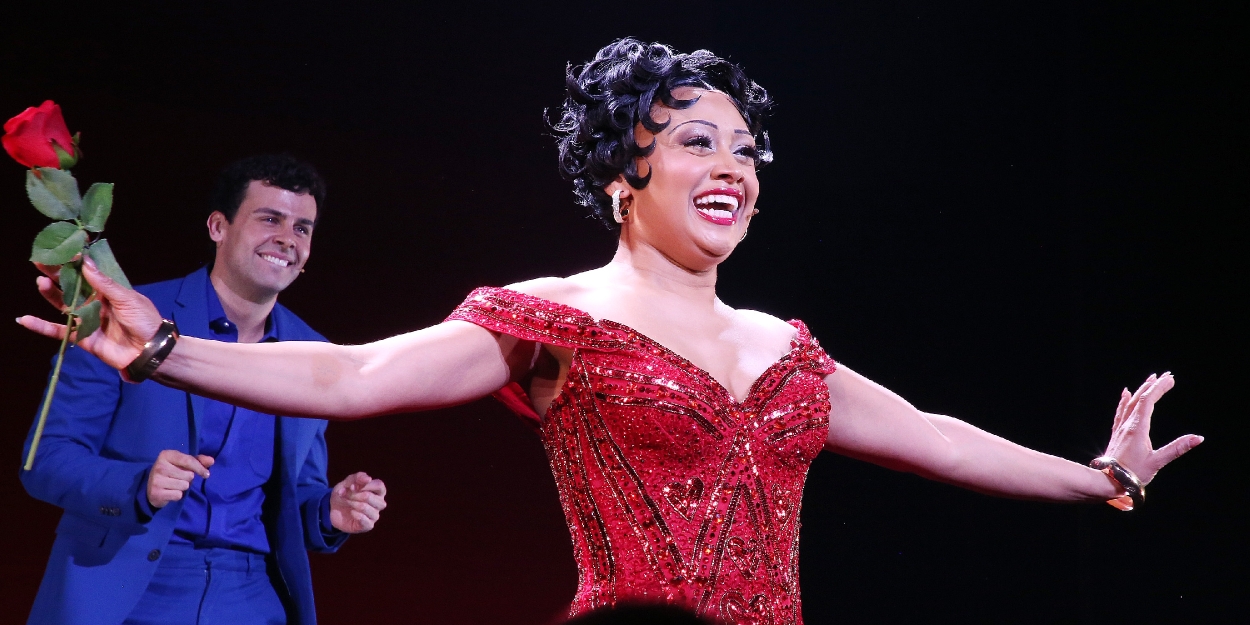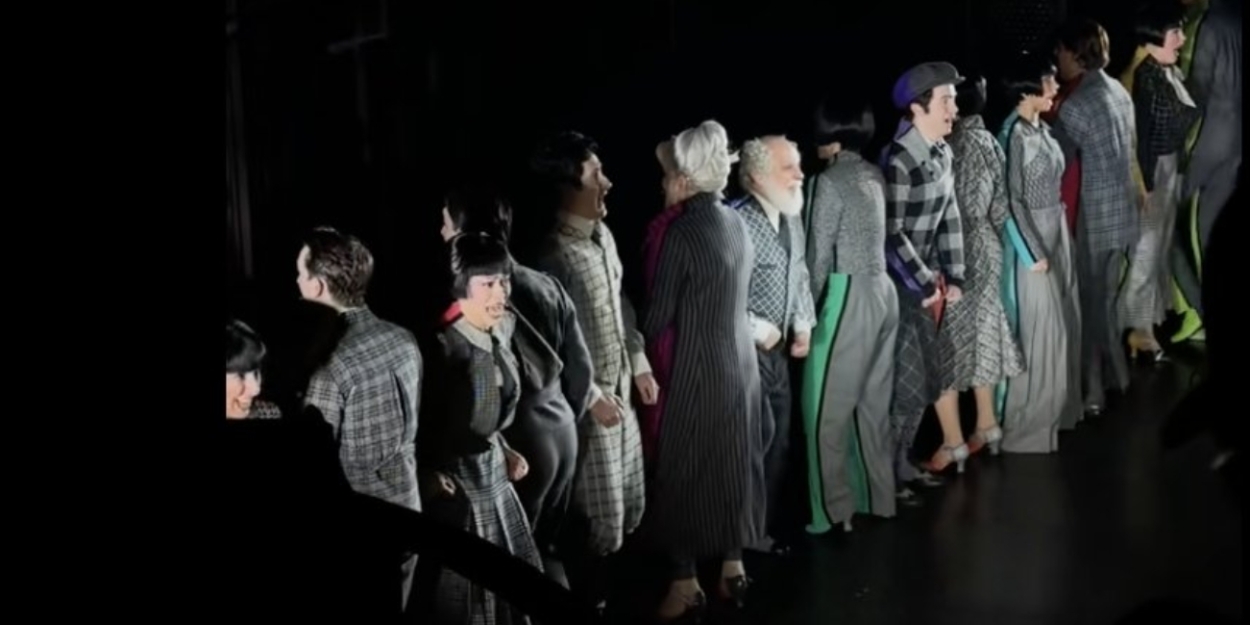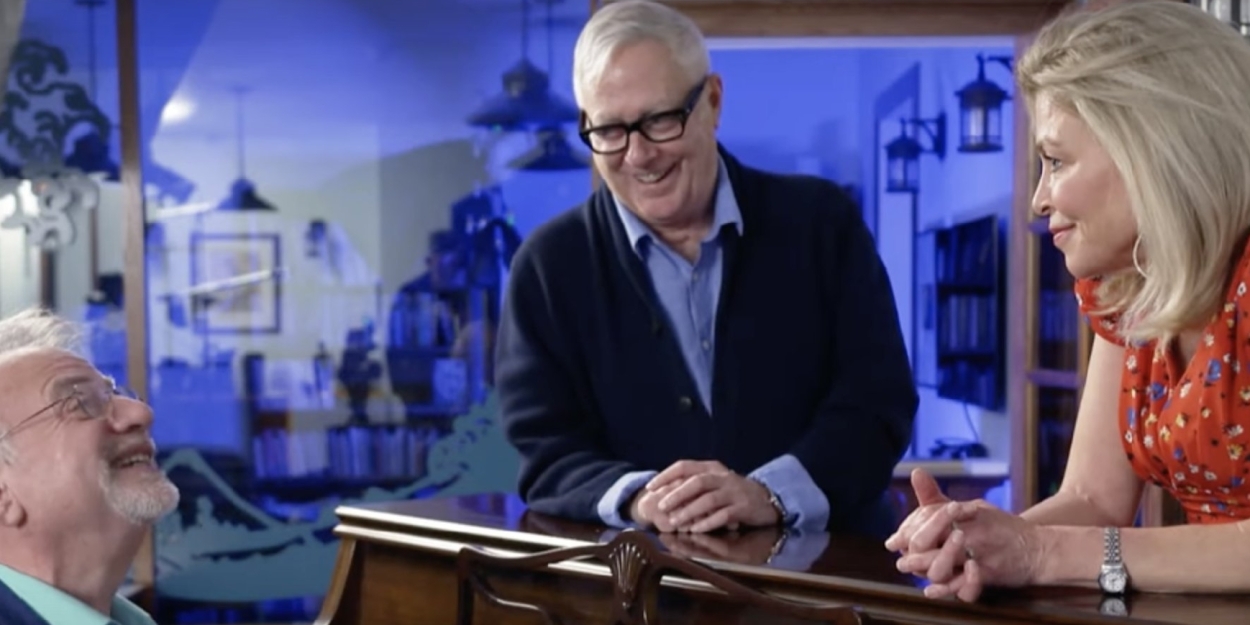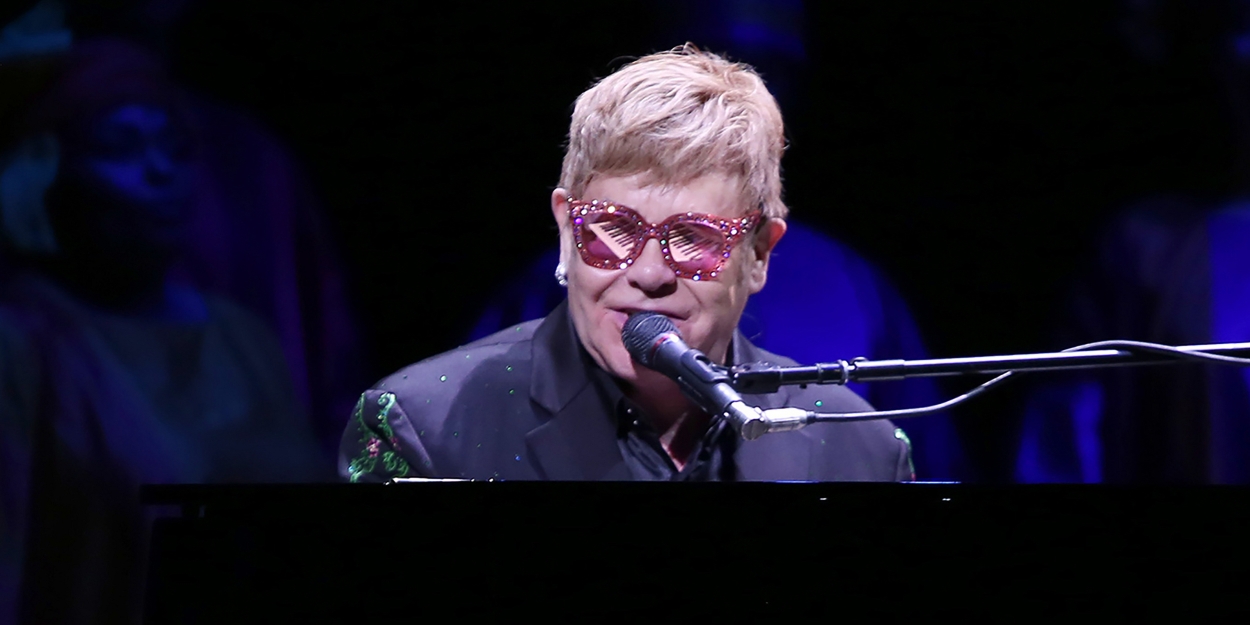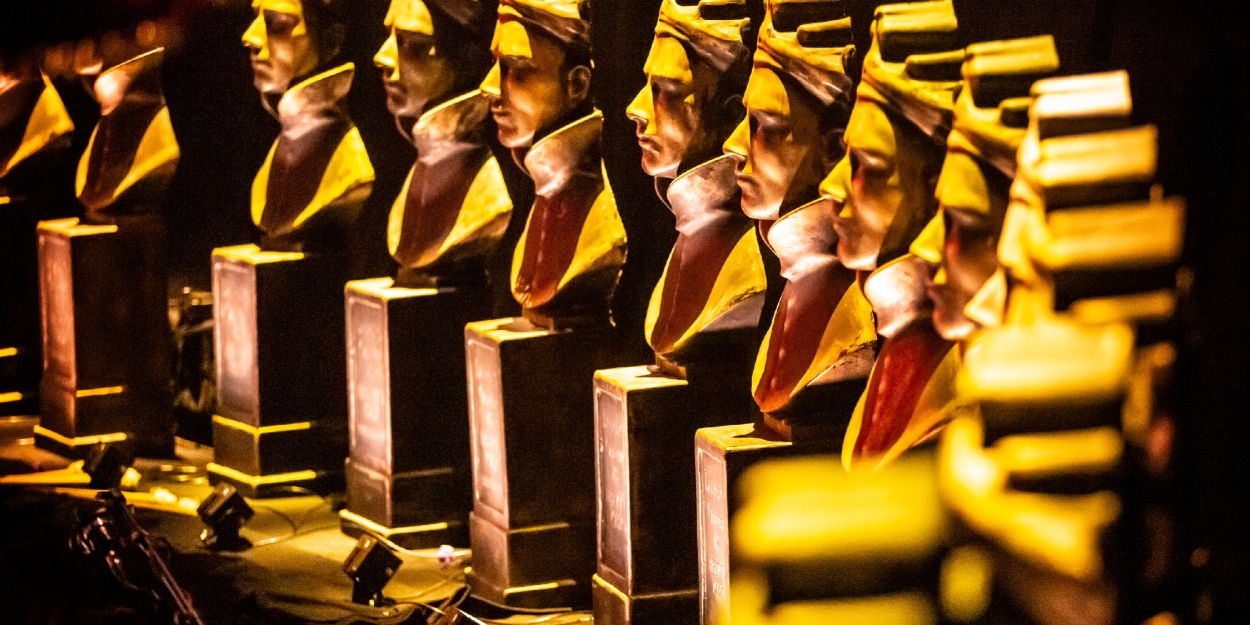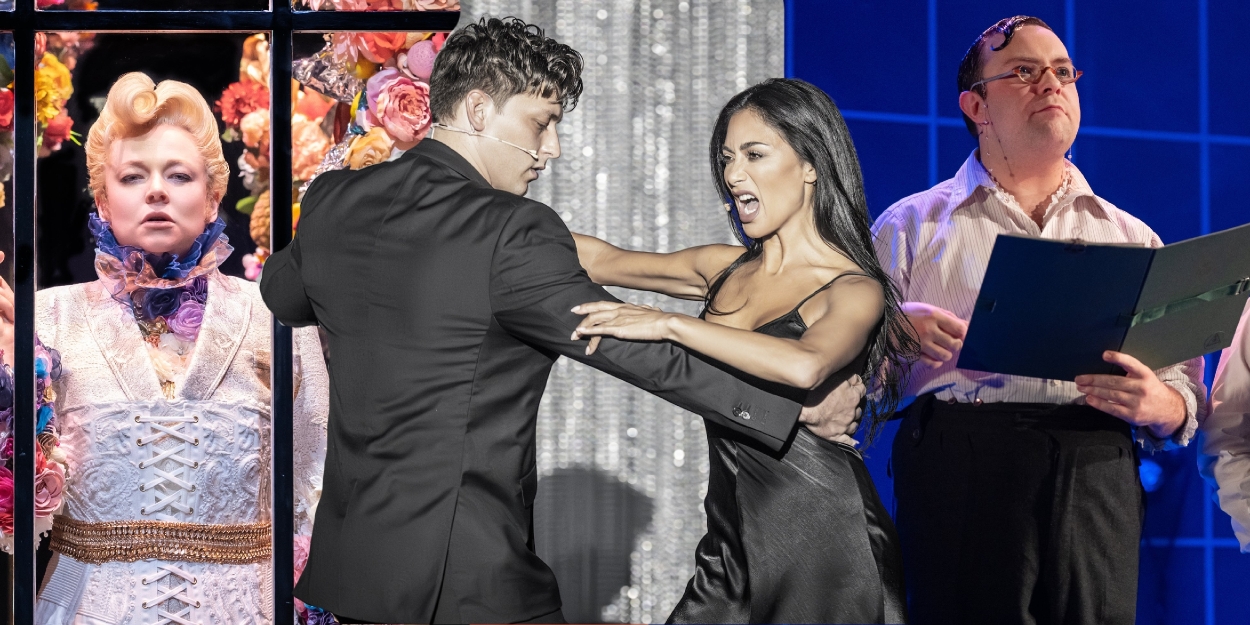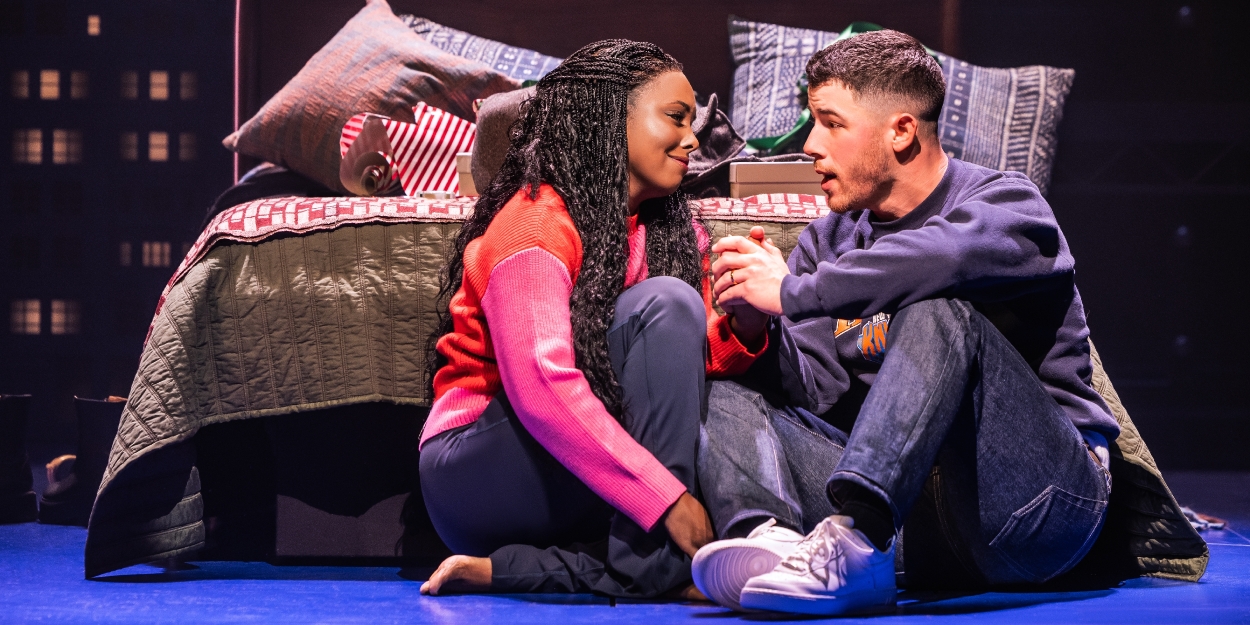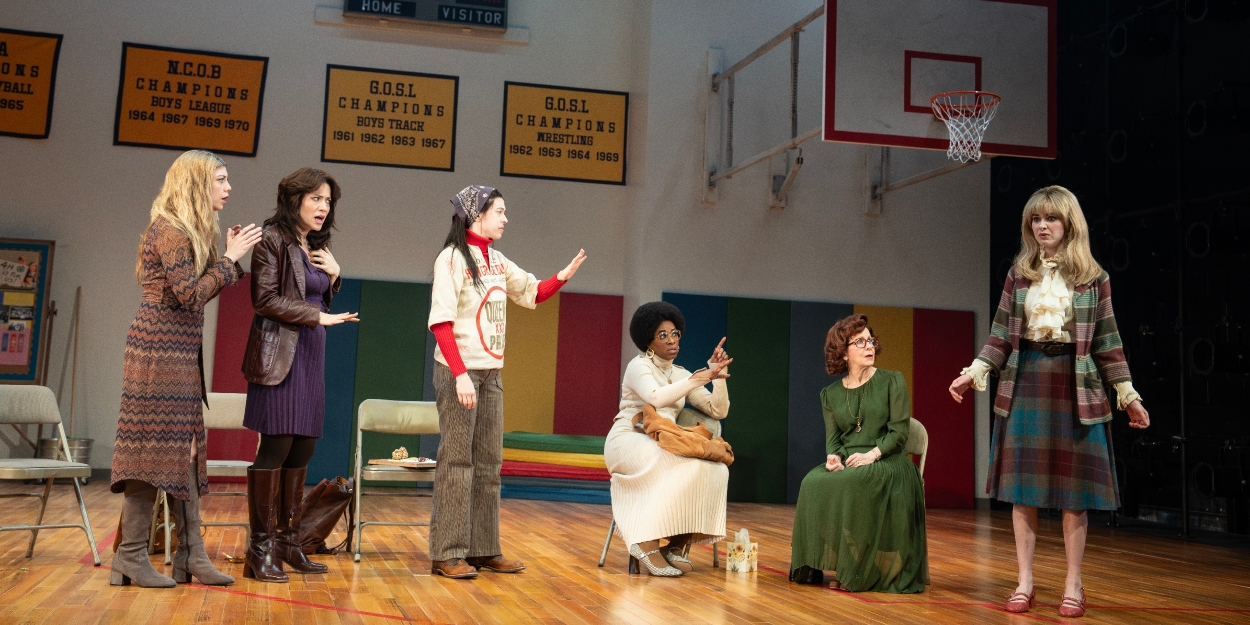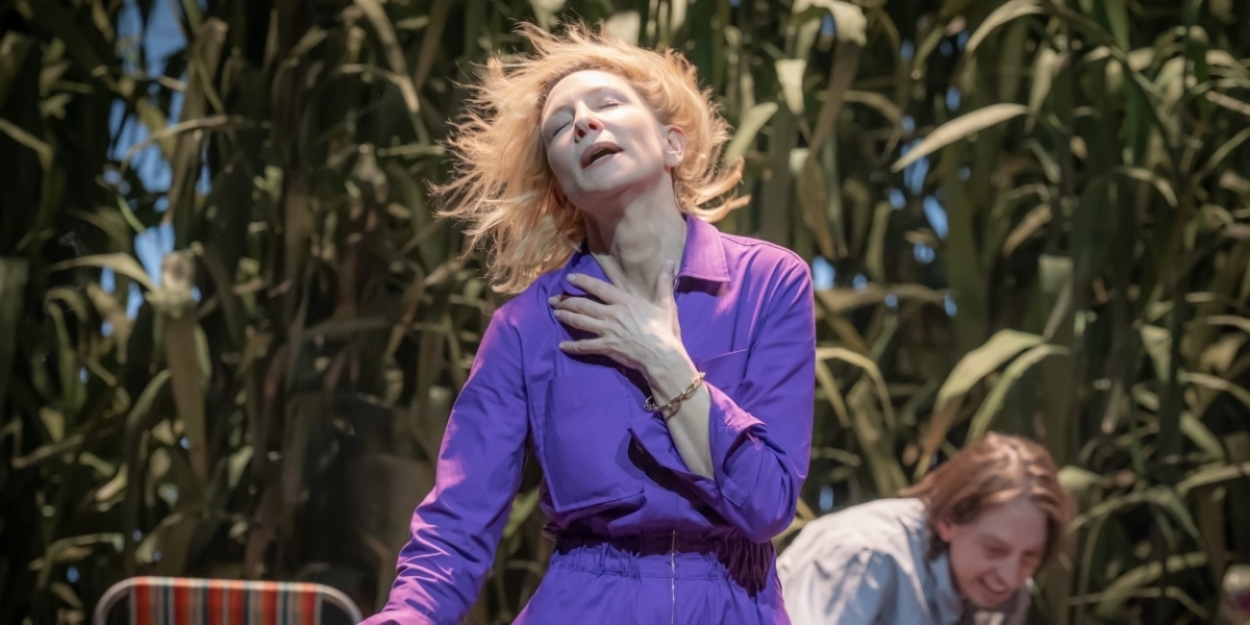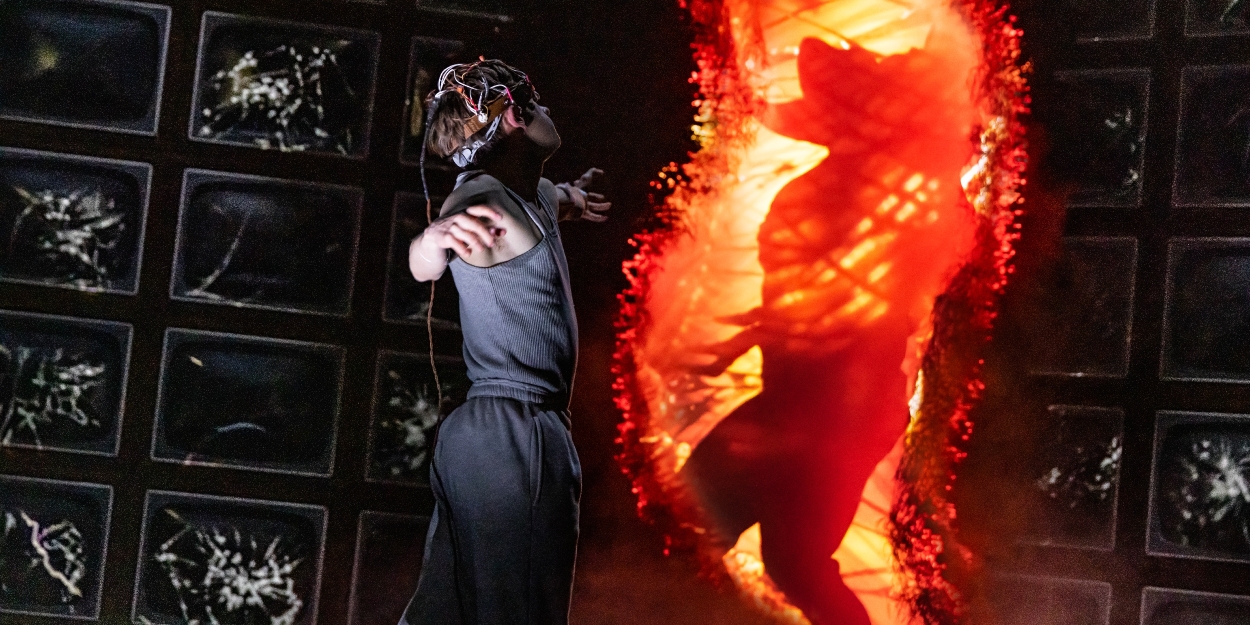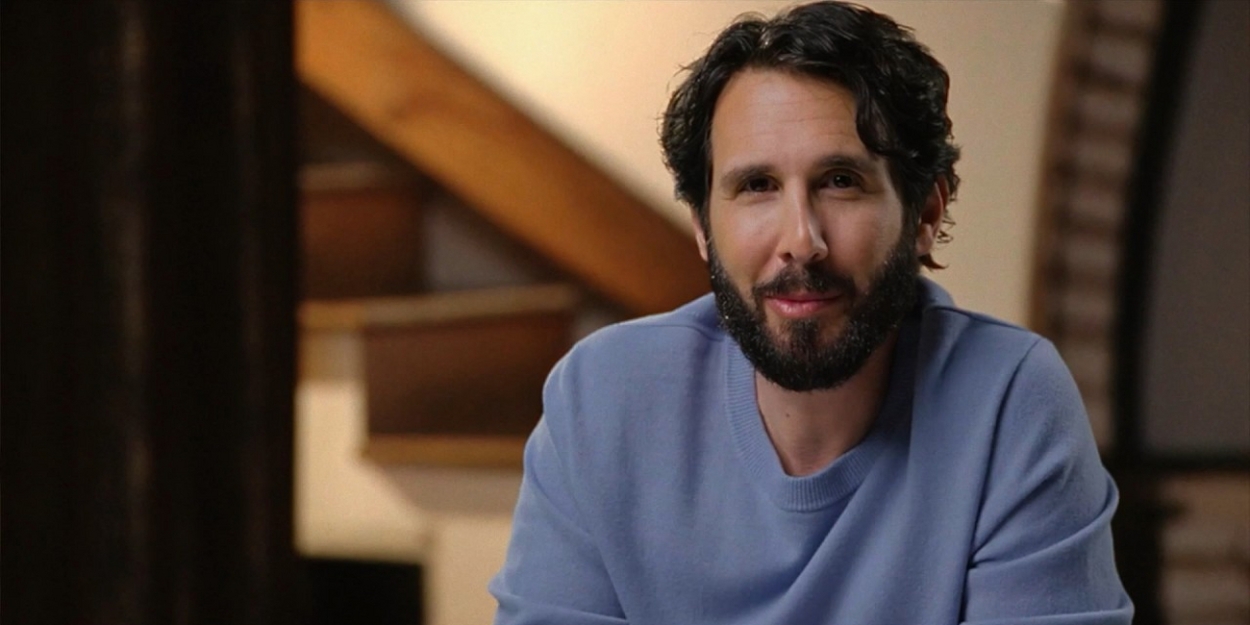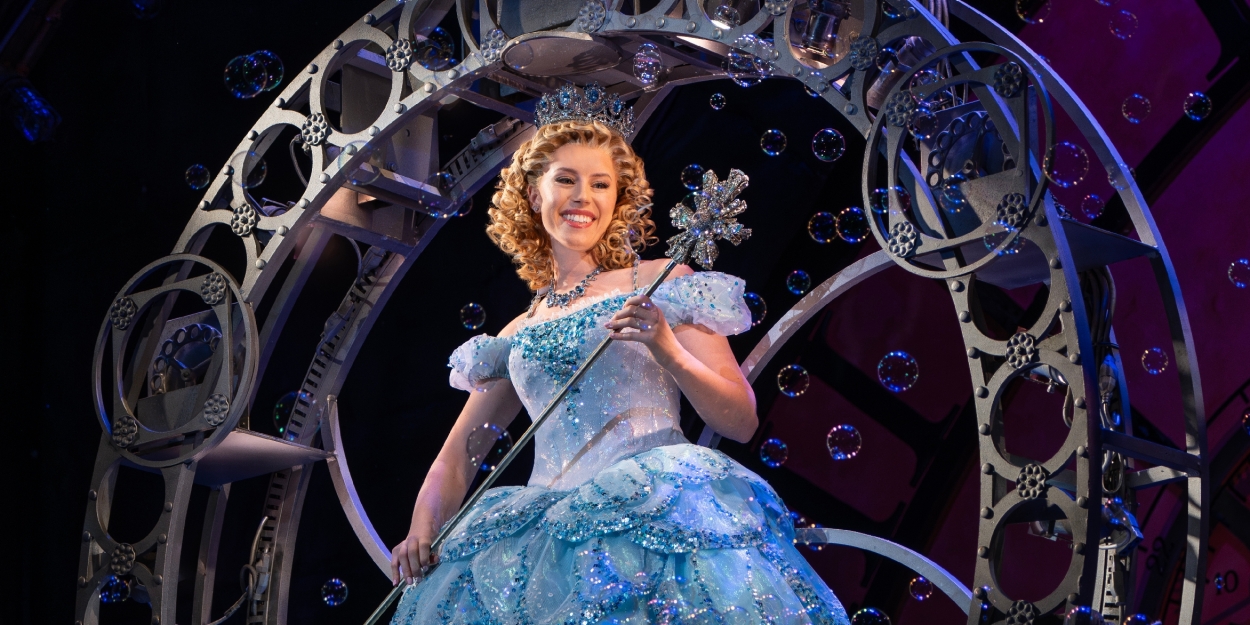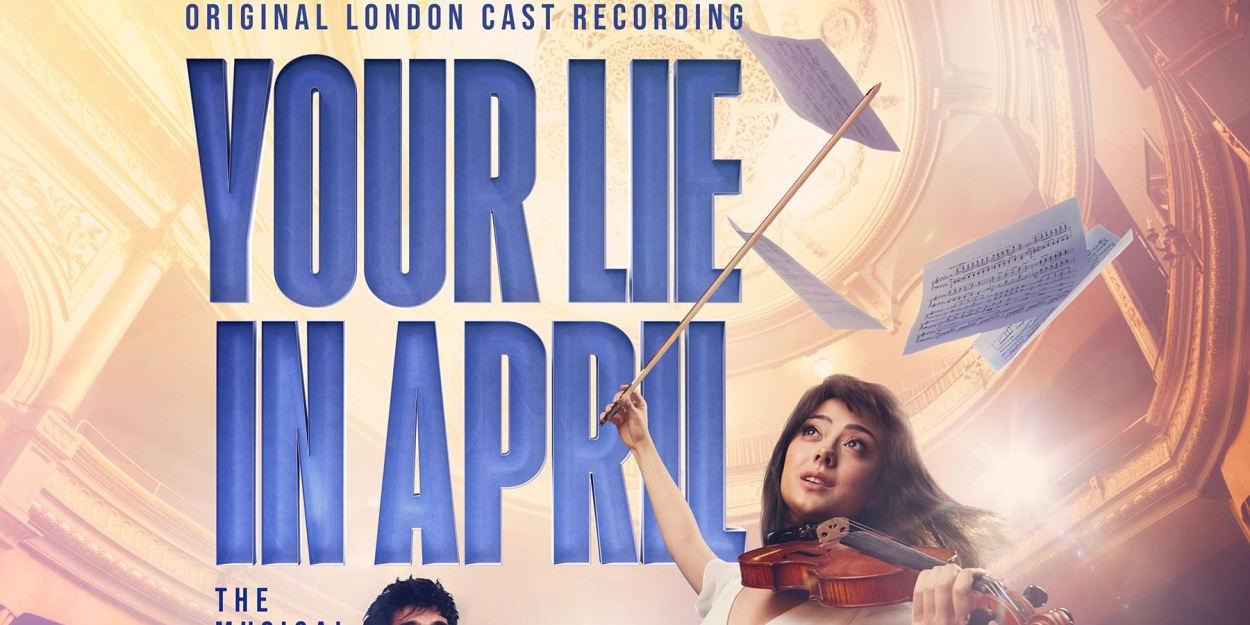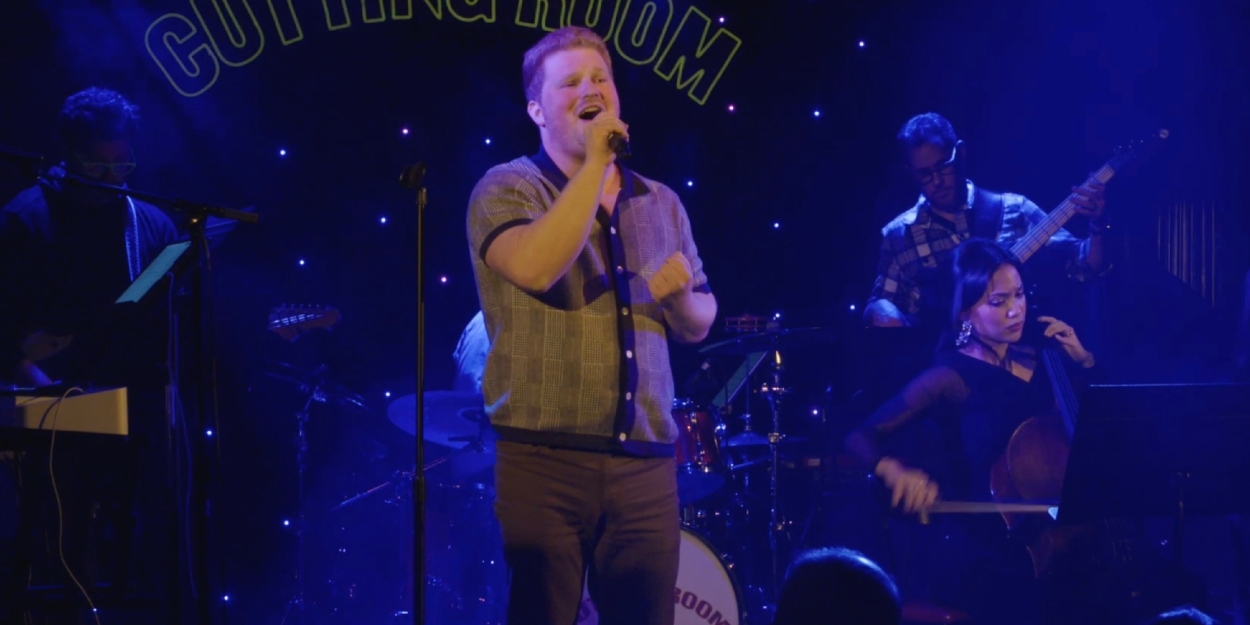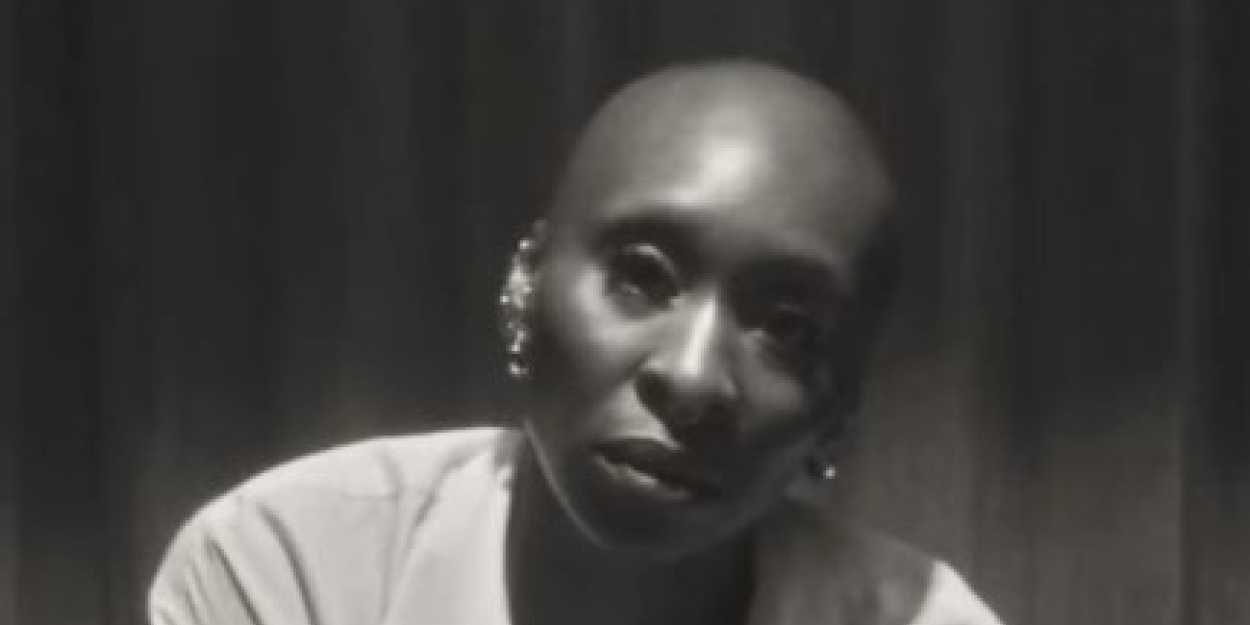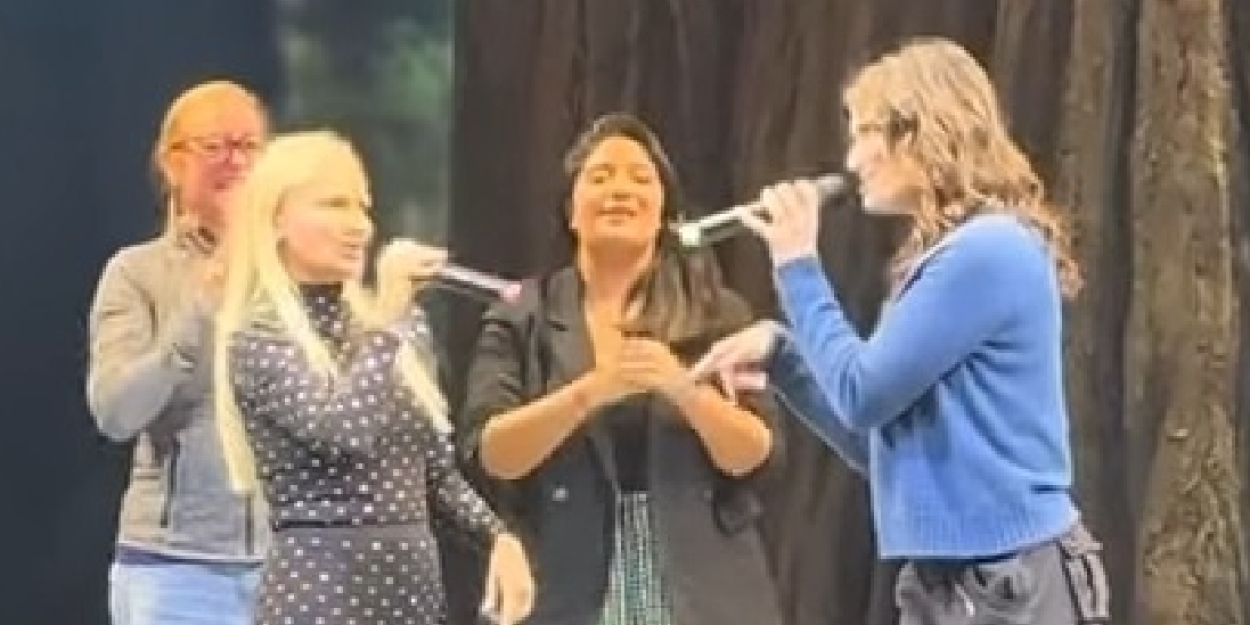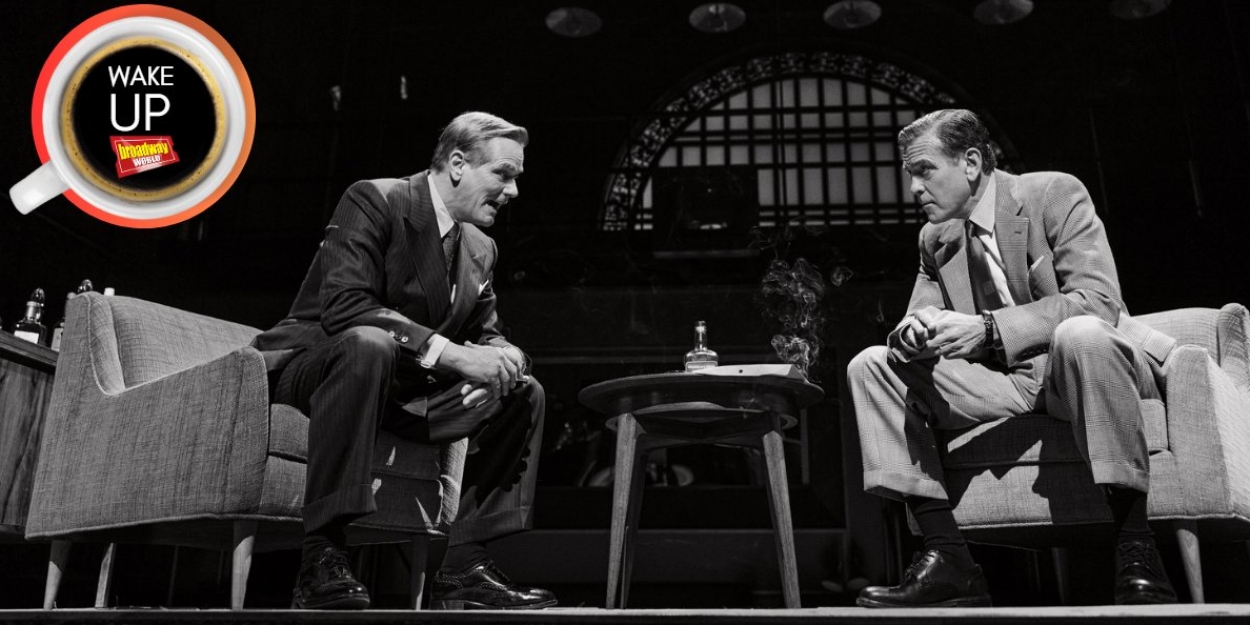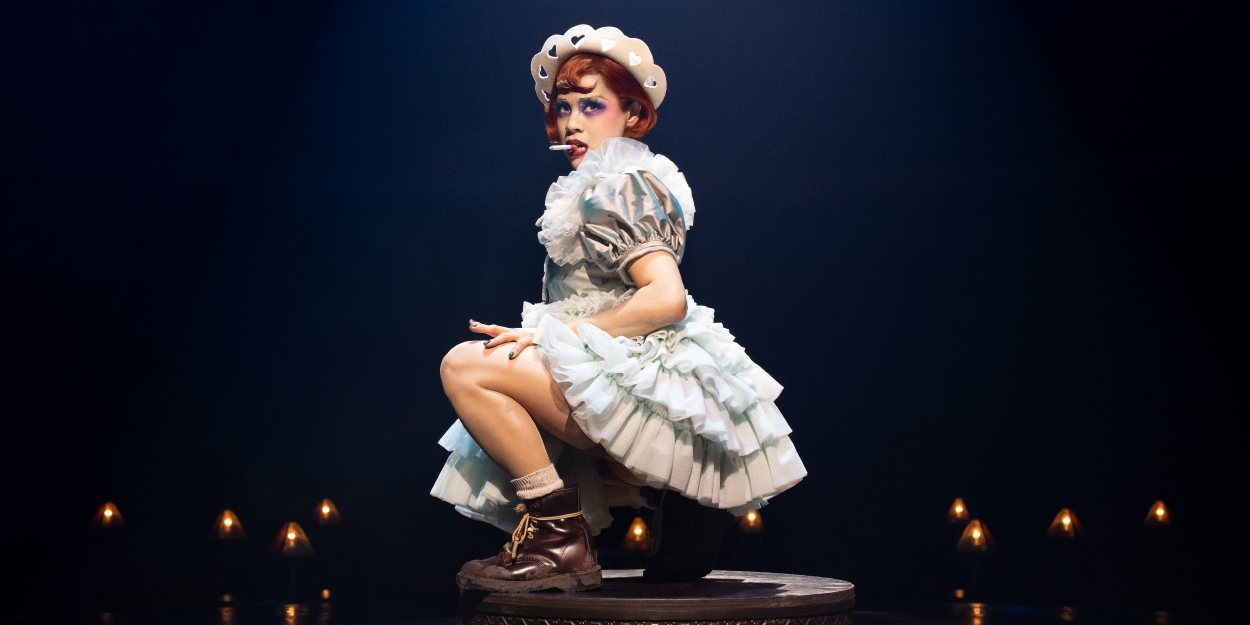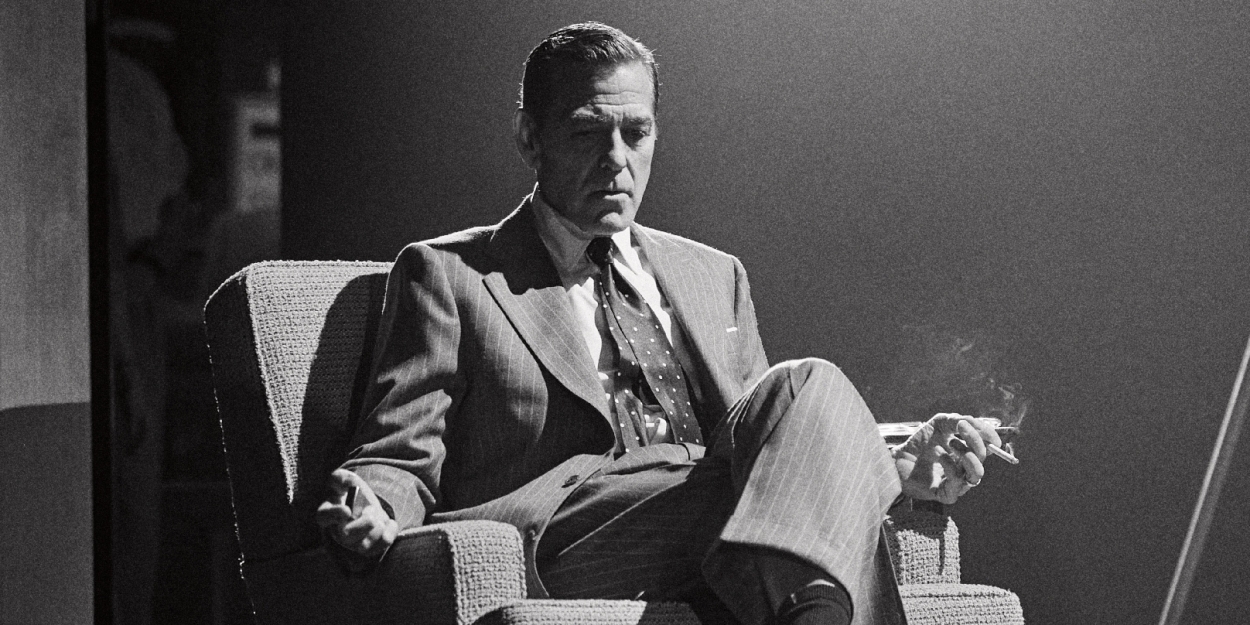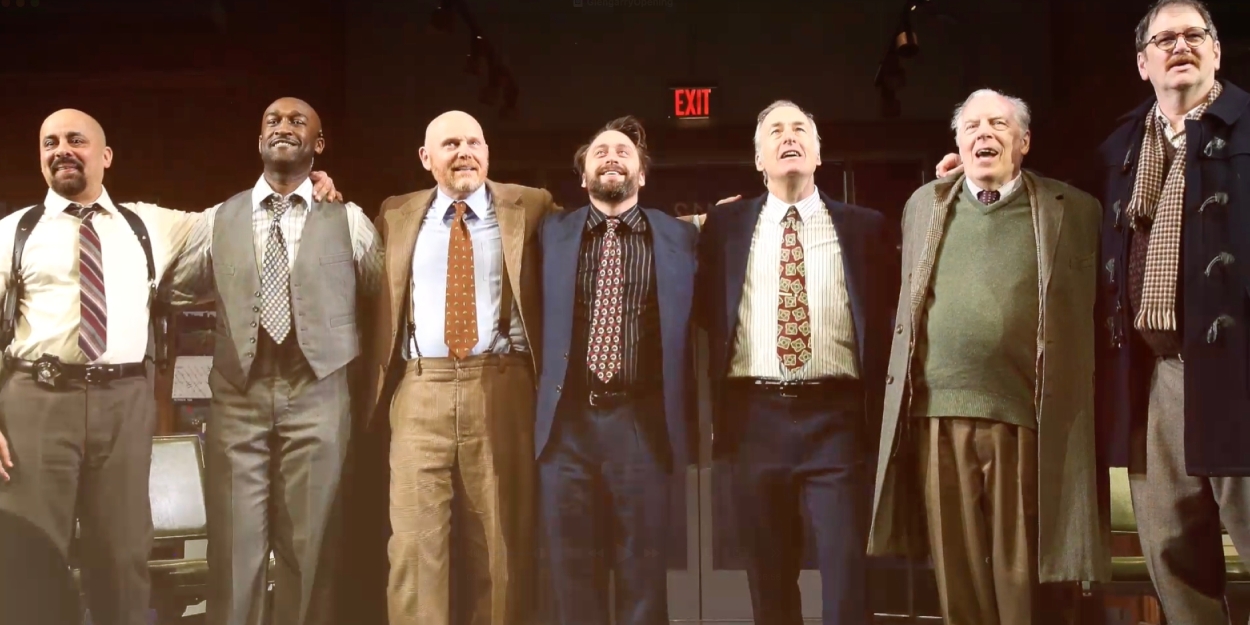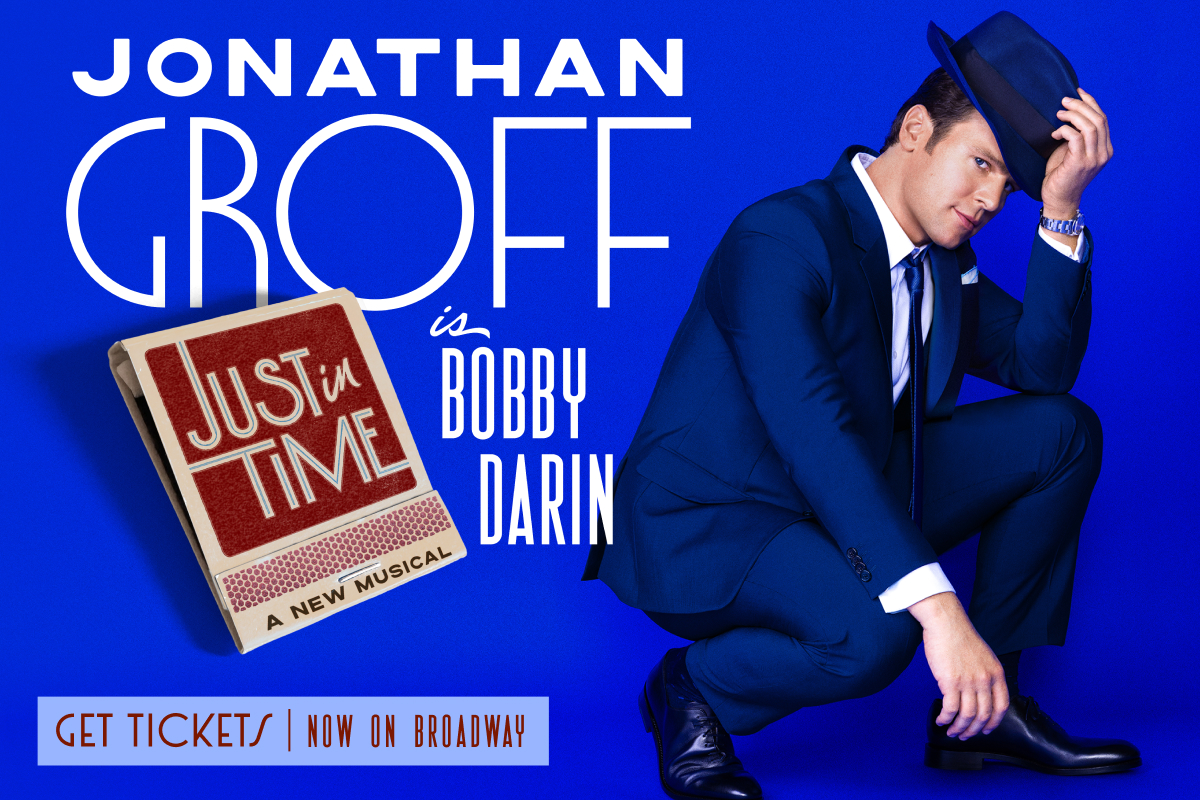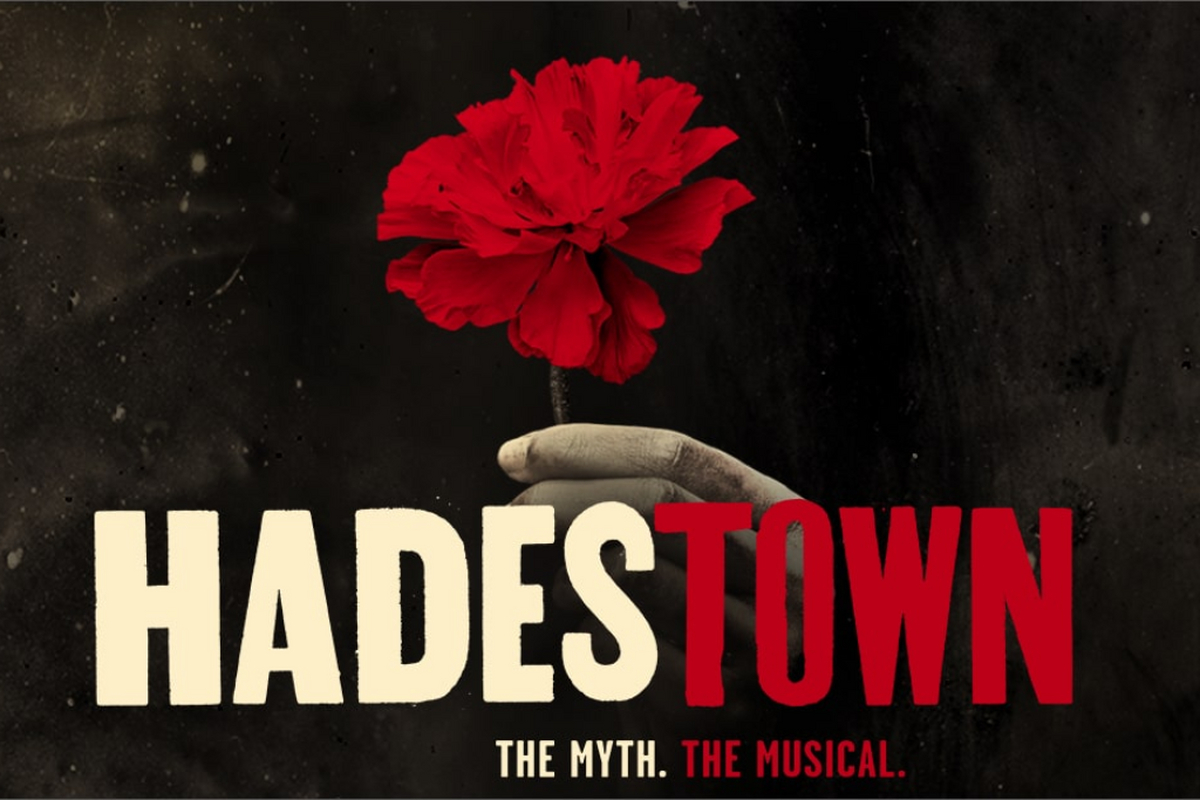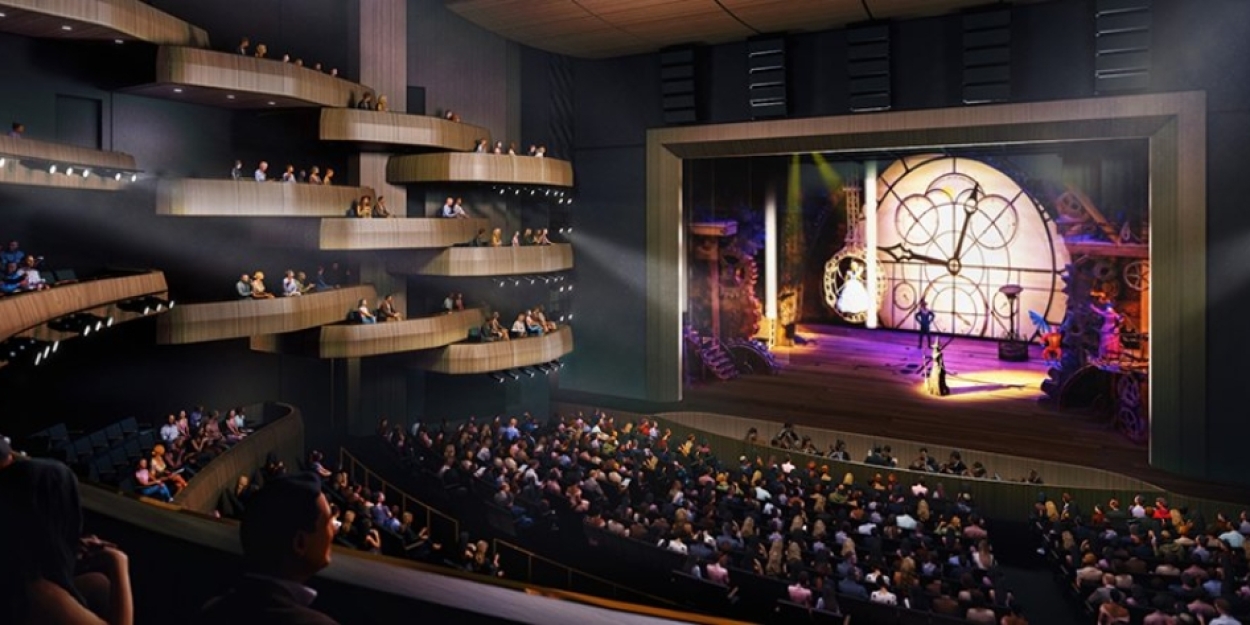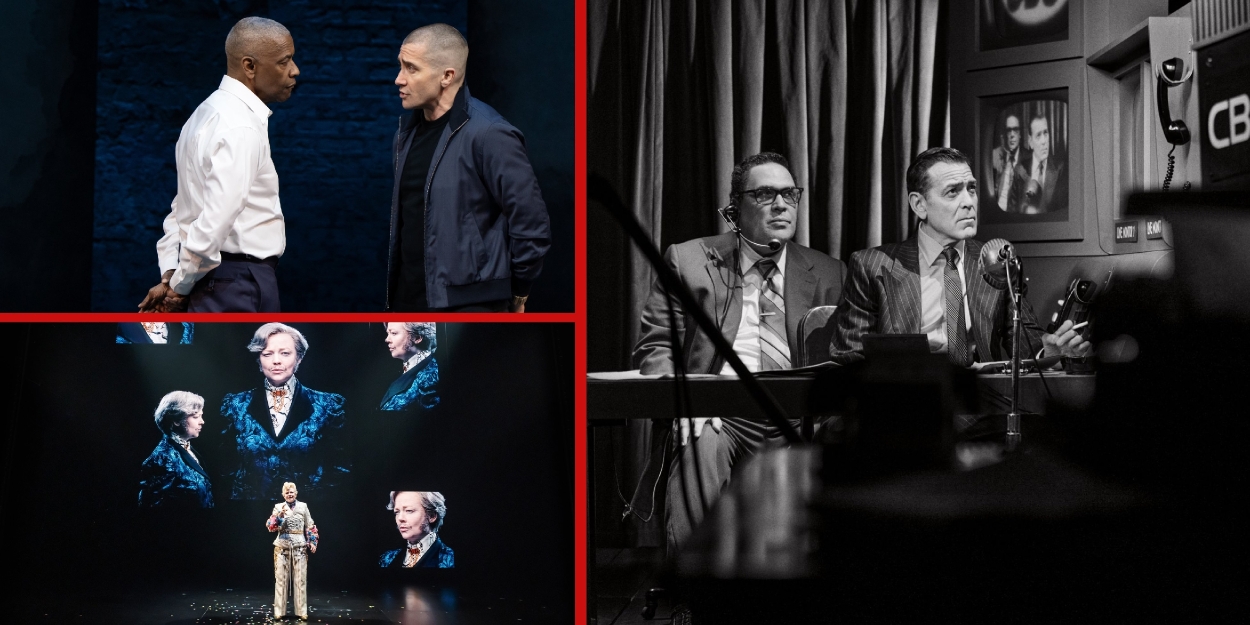- Photos: BOOP! THE MUSICAL's Opening Night Curtain Call
- Exclusive: Oh My Pod U Guys- My Exit Music, Please with Mikayla Renfrow
- Character Breakdown: PIRATES! THE PENZANCE MUSICAL Cast Unpacks Their Roles
Latest News
Trending Stories
Recommended for You
Photos: First Look At Orville Peck and Eva Noblezada In CABARET AT THE KIT KAT CLUB
Peck and Noblezada will star in the Tony Award-winning production for a limited 16-week engagement through Sunday, July 20.
Review Roundup: GOOD NIGHT, AND GOOD LUCK Brings George Clooney To Broadway
Good Night and Good Luck is now running at Broadway's Winter Garden Theatre.
Olivier Awards 2025- All the Winners!
The Olivier Awards 2025 will take place at the Royal Albert Hall at 6pm GMT.
Video: GLENGARRY GLEN ROSS Celebrates Opening Night
Glengarry Glen Ross stars Bob Odenkirk, Kieren Culkin, Bill Burr, and more.
Ticket Central
Hot Photos this week
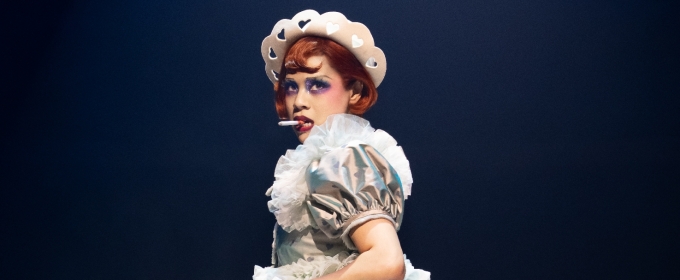 First Look At Orville Peck and Eva Noblezada In CABARET AT THE KIT KAT CLUB
Peck and Noblezada will star in the Tony Award-winning production for a limited 16-week engagement through Sunday, July 20.
First Look At Orville Peck and Eva Noblezada In CABARET AT THE KIT KAT CLUB
Peck and Noblezada will star in the Tony Award-winning production for a limited 16-week engagement through Sunday, July 20.
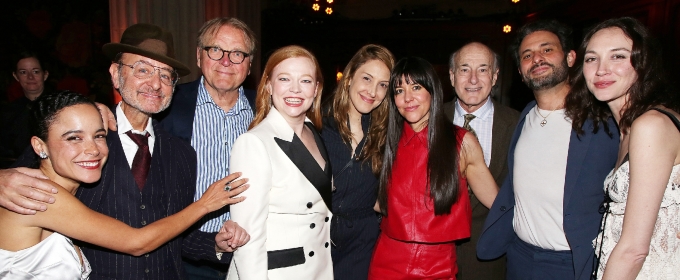 Exclusive: Inside THE PICTURE OF DORIAN GRAY Opening Night Party
The production opened on March 27 at the Music Box Theatre.
Exclusive: Inside THE PICTURE OF DORIAN GRAY Opening Night Party
The production opened on March 27 at the Music Box Theatre.
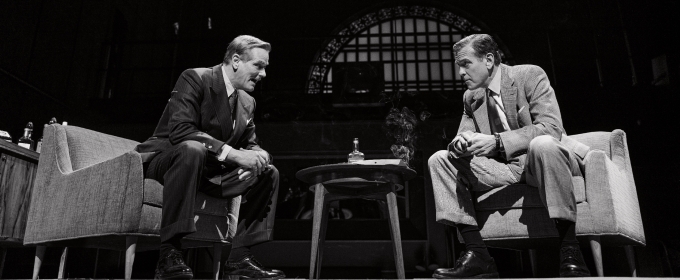 First Look at GOOD NIGHT, AND GOOD LUCK, Starring George Clooney
Good Night, and Good Luck will open at the Winter Garden Theatre on April 3.
First Look at GOOD NIGHT, AND GOOD LUCK, Starring George Clooney
Good Night, and Good Luck will open at the Winter Garden Theatre on April 3.
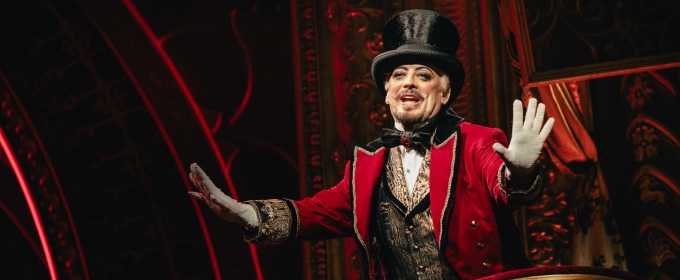 Boy George Returns to MOULIN ROUGE! on Broadway
Boy George will play a limited 10-week engagement through Sunday, May 25.
Boy George Returns to MOULIN ROUGE! on Broadway
Boy George will play a limited 10-week engagement through Sunday, May 25.
 GOOD NIGHT, AND GOOD LUCK Opening Night Brings Out Jennifer Lopez, Rachel Zegler and More
Performances are now underway at the Winter Garden Theatre.
GOOD NIGHT, AND GOOD LUCK Opening Night Brings Out Jennifer Lopez, Rachel Zegler and More
Performances are now underway at the Winter Garden Theatre.
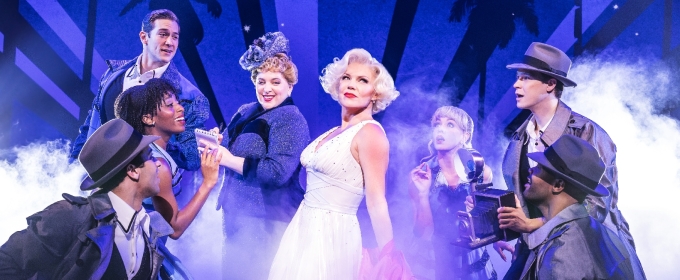 SMASH On Broadway - First Look
Now in previews at the Imperial Theatre, SMASH will officially open on Broadway on April 10.
SMASH On Broadway - First Look
Now in previews at the Imperial Theatre, SMASH will officially open on Broadway on April 10.
 Exclusive: Inside THE PICTURE OF DORIAN GRAY Opening Night Party
The production opened on March 27 at the Music Box Theatre.
Exclusive: Inside THE PICTURE OF DORIAN GRAY Opening Night Party
The production opened on March 27 at the Music Box Theatre.
 First Look at GOOD NIGHT, AND GOOD LUCK, Starring George Clooney
Good Night, and Good Luck will open at the Winter Garden Theatre on April 3.
First Look at GOOD NIGHT, AND GOOD LUCK, Starring George Clooney
Good Night, and Good Luck will open at the Winter Garden Theatre on April 3.
 Boy George Returns to MOULIN ROUGE! on Broadway
Boy George will play a limited 10-week engagement through Sunday, May 25.
Boy George Returns to MOULIN ROUGE! on Broadway
Boy George will play a limited 10-week engagement through Sunday, May 25.
 GOOD NIGHT, AND GOOD LUCK Opening Night Brings Out Jennifer Lopez, Rachel Zegler and More
Performances are now underway at the Winter Garden Theatre.
GOOD NIGHT, AND GOOD LUCK Opening Night Brings Out Jennifer Lopez, Rachel Zegler and More
Performances are now underway at the Winter Garden Theatre.
 SMASH On Broadway - First Look
Now in previews at the Imperial Theatre, SMASH will officially open on Broadway on April 10.
SMASH On Broadway - First Look
Now in previews at the Imperial Theatre, SMASH will officially open on Broadway on April 10.
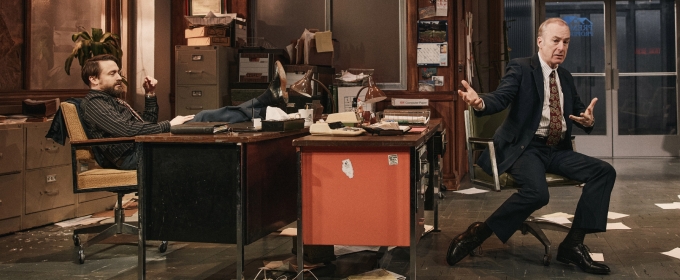 GLENGARRY GLEN ROSS On Broadway
The cast also includes Michael Mckean, Donald Webber, Jr., Howard W. Overshown, and John Pirruccello.
GLENGARRY GLEN ROSS On Broadway
The cast also includes Michael Mckean, Donald Webber, Jr., Howard W. Overshown, and John Pirruccello.
 First Look at GOOD NIGHT, AND GOOD LUCK, Starring George Clooney
Good Night, and Good Luck will open at the Winter Garden Theatre on April 3.
First Look at GOOD NIGHT, AND GOOD LUCK, Starring George Clooney
Good Night, and Good Luck will open at the Winter Garden Theatre on April 3.
 Boy George Returns to MOULIN ROUGE! on Broadway
Boy George will play a limited 10-week engagement through Sunday, May 25.
Boy George Returns to MOULIN ROUGE! on Broadway
Boy George will play a limited 10-week engagement through Sunday, May 25.
 GOOD NIGHT, AND GOOD LUCK Opening Night Brings Out Jennifer Lopez, Rachel Zegler and More
Performances are now underway at the Winter Garden Theatre.
GOOD NIGHT, AND GOOD LUCK Opening Night Brings Out Jennifer Lopez, Rachel Zegler and More
Performances are now underway at the Winter Garden Theatre.
 SMASH On Broadway - First Look
Now in previews at the Imperial Theatre, SMASH will officially open on Broadway on April 10.
SMASH On Broadway - First Look
Now in previews at the Imperial Theatre, SMASH will officially open on Broadway on April 10.
 GLENGARRY GLEN ROSS On Broadway
The cast also includes Michael Mckean, Donald Webber, Jr., Howard W. Overshown, and John Pirruccello.
GLENGARRY GLEN ROSS On Broadway
The cast also includes Michael Mckean, Donald Webber, Jr., Howard W. Overshown, and John Pirruccello.
 STEPHEN SONDHEIM'S OLD FRIENDS Hosts Benefit Performance
Stephen Sondheim’s Old Friends will officially open on Broadway on April 8, 2025.
STEPHEN SONDHEIM'S OLD FRIENDS Hosts Benefit Performance
Stephen Sondheim’s Old Friends will officially open on Broadway on April 8, 2025.
 Boy George Returns to MOULIN ROUGE! on Broadway
Boy George will play a limited 10-week engagement through Sunday, May 25.
Boy George Returns to MOULIN ROUGE! on Broadway
Boy George will play a limited 10-week engagement through Sunday, May 25.
 GOOD NIGHT, AND GOOD LUCK Opening Night Brings Out Jennifer Lopez, Rachel Zegler and More
Performances are now underway at the Winter Garden Theatre.
GOOD NIGHT, AND GOOD LUCK Opening Night Brings Out Jennifer Lopez, Rachel Zegler and More
Performances are now underway at the Winter Garden Theatre.
 SMASH On Broadway - First Look
Now in previews at the Imperial Theatre, SMASH will officially open on Broadway on April 10.
SMASH On Broadway - First Look
Now in previews at the Imperial Theatre, SMASH will officially open on Broadway on April 10.
 GLENGARRY GLEN ROSS On Broadway
The cast also includes Michael Mckean, Donald Webber, Jr., Howard W. Overshown, and John Pirruccello.
GLENGARRY GLEN ROSS On Broadway
The cast also includes Michael Mckean, Donald Webber, Jr., Howard W. Overshown, and John Pirruccello.
 STEPHEN SONDHEIM'S OLD FRIENDS Hosts Benefit Performance
Stephen Sondheim’s Old Friends will officially open on Broadway on April 8, 2025.
STEPHEN SONDHEIM'S OLD FRIENDS Hosts Benefit Performance
Stephen Sondheim’s Old Friends will officially open on Broadway on April 8, 2025.
 Criss, Holmes & More at GLENGARRY GLEN ROSS Opening
Performances are now underway at the Palace Theatre.
Criss, Holmes & More at GLENGARRY GLEN ROSS Opening
Performances are now underway at the Palace Theatre.
 GOOD NIGHT, AND GOOD LUCK Opening Night Brings Out Jennifer Lopez, Rachel Zegler and More
Performances are now underway at the Winter Garden Theatre.
GOOD NIGHT, AND GOOD LUCK Opening Night Brings Out Jennifer Lopez, Rachel Zegler and More
Performances are now underway at the Winter Garden Theatre.
 SMASH On Broadway - First Look
Now in previews at the Imperial Theatre, SMASH will officially open on Broadway on April 10.
SMASH On Broadway - First Look
Now in previews at the Imperial Theatre, SMASH will officially open on Broadway on April 10.
 GLENGARRY GLEN ROSS On Broadway
The cast also includes Michael Mckean, Donald Webber, Jr., Howard W. Overshown, and John Pirruccello.
GLENGARRY GLEN ROSS On Broadway
The cast also includes Michael Mckean, Donald Webber, Jr., Howard W. Overshown, and John Pirruccello.
 STEPHEN SONDHEIM'S OLD FRIENDS Hosts Benefit Performance
Stephen Sondheim’s Old Friends will officially open on Broadway on April 8, 2025.
STEPHEN SONDHEIM'S OLD FRIENDS Hosts Benefit Performance
Stephen Sondheim’s Old Friends will officially open on Broadway on April 8, 2025.
 Criss, Holmes & More at GLENGARRY GLEN ROSS Opening
Performances are now underway at the Palace Theatre.
Criss, Holmes & More at GLENGARRY GLEN ROSS Opening
Performances are now underway at the Palace Theatre.
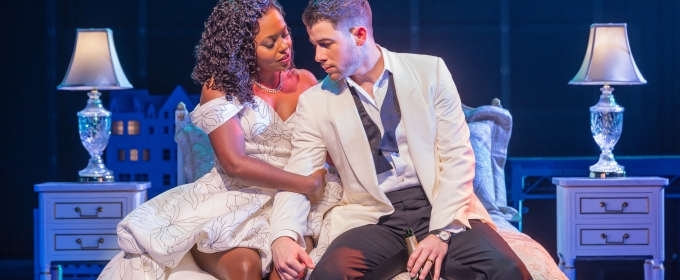 Nick Jonas & Adrienne Warren in THE LAST FIVE YEARS
The Last Five Years is running on Broadway at the Hudson Theatre.
Nick Jonas & Adrienne Warren in THE LAST FIVE YEARS
The Last Five Years is running on Broadway at the Hudson Theatre.
 SMASH On Broadway - First Look
Now in previews at the Imperial Theatre, SMASH will officially open on Broadway on April 10.
SMASH On Broadway - First Look
Now in previews at the Imperial Theatre, SMASH will officially open on Broadway on April 10.
 GLENGARRY GLEN ROSS On Broadway
The cast also includes Michael Mckean, Donald Webber, Jr., Howard W. Overshown, and John Pirruccello.
GLENGARRY GLEN ROSS On Broadway
The cast also includes Michael Mckean, Donald Webber, Jr., Howard W. Overshown, and John Pirruccello.
 STEPHEN SONDHEIM'S OLD FRIENDS Hosts Benefit Performance
Stephen Sondheim’s Old Friends will officially open on Broadway on April 8, 2025.
STEPHEN SONDHEIM'S OLD FRIENDS Hosts Benefit Performance
Stephen Sondheim’s Old Friends will officially open on Broadway on April 8, 2025.
 Criss, Holmes & More at GLENGARRY GLEN ROSS Opening
Performances are now underway at the Palace Theatre.
Criss, Holmes & More at GLENGARRY GLEN ROSS Opening
Performances are now underway at the Palace Theatre.
 Nick Jonas & Adrienne Warren in THE LAST FIVE YEARS
The Last Five Years is running on Broadway at the Hudson Theatre.
Nick Jonas & Adrienne Warren in THE LAST FIVE YEARS
The Last Five Years is running on Broadway at the Hudson Theatre.
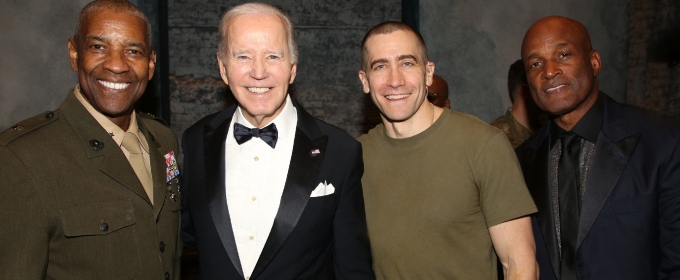 OTHELLO on Broadway Welcomes Joe and Jill Biden for A Backstage Visit
The former President and First Lady stopped in for a visit with stars Denzel Washington, Jake Gyllenhaal, and more.
OTHELLO on Broadway Welcomes Joe and Jill Biden for A Backstage Visit
The former President and First Lady stopped in for a visit with stars Denzel Washington, Jake Gyllenhaal, and more.
 GLENGARRY GLEN ROSS On Broadway
The cast also includes Michael Mckean, Donald Webber, Jr., Howard W. Overshown, and John Pirruccello.
GLENGARRY GLEN ROSS On Broadway
The cast also includes Michael Mckean, Donald Webber, Jr., Howard W. Overshown, and John Pirruccello.
 STEPHEN SONDHEIM'S OLD FRIENDS Hosts Benefit Performance
Stephen Sondheim’s Old Friends will officially open on Broadway on April 8, 2025.
STEPHEN SONDHEIM'S OLD FRIENDS Hosts Benefit Performance
Stephen Sondheim’s Old Friends will officially open on Broadway on April 8, 2025.
 Criss, Holmes & More at GLENGARRY GLEN ROSS Opening
Performances are now underway at the Palace Theatre.
Criss, Holmes & More at GLENGARRY GLEN ROSS Opening
Performances are now underway at the Palace Theatre.
 Nick Jonas & Adrienne Warren in THE LAST FIVE YEARS
The Last Five Years is running on Broadway at the Hudson Theatre.
Nick Jonas & Adrienne Warren in THE LAST FIVE YEARS
The Last Five Years is running on Broadway at the Hudson Theatre.
 OTHELLO on Broadway Welcomes Joe and Jill Biden for A Backstage Visit
The former President and First Lady stopped in for a visit with stars Denzel Washington, Jake Gyllenhaal, and more.
OTHELLO on Broadway Welcomes Joe and Jill Biden for A Backstage Visit
The former President and First Lady stopped in for a visit with stars Denzel Washington, Jake Gyllenhaal, and more.
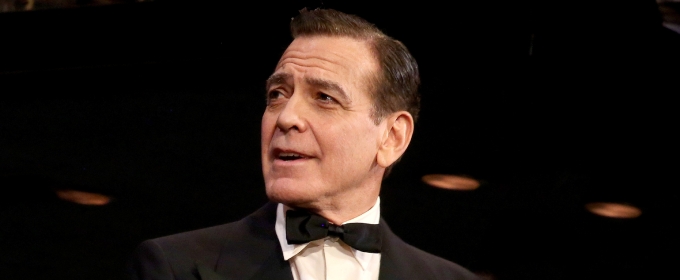 George Clooney and the Cast of GOOD NIGHT, AND GOOD LUCK Take Opening Night Bows
Performances are now underway at the Winter Garden Theatre.
George Clooney and the Cast of GOOD NIGHT, AND GOOD LUCK Take Opening Night Bows
Performances are now underway at the Winter Garden Theatre.
 STEPHEN SONDHEIM'S OLD FRIENDS Hosts Benefit Performance
Stephen Sondheim’s Old Friends will officially open on Broadway on April 8, 2025.
STEPHEN SONDHEIM'S OLD FRIENDS Hosts Benefit Performance
Stephen Sondheim’s Old Friends will officially open on Broadway on April 8, 2025.
 Criss, Holmes & More at GLENGARRY GLEN ROSS Opening
Performances are now underway at the Palace Theatre.
Criss, Holmes & More at GLENGARRY GLEN ROSS Opening
Performances are now underway at the Palace Theatre.
 Nick Jonas & Adrienne Warren in THE LAST FIVE YEARS
The Last Five Years is running on Broadway at the Hudson Theatre.
Nick Jonas & Adrienne Warren in THE LAST FIVE YEARS
The Last Five Years is running on Broadway at the Hudson Theatre.
 OTHELLO on Broadway Welcomes Joe and Jill Biden for A Backstage Visit
The former President and First Lady stopped in for a visit with stars Denzel Washington, Jake Gyllenhaal, and more.
OTHELLO on Broadway Welcomes Joe and Jill Biden for A Backstage Visit
The former President and First Lady stopped in for a visit with stars Denzel Washington, Jake Gyllenhaal, and more.
 George Clooney and the Cast of GOOD NIGHT, AND GOOD LUCK Take Opening Night Bows
Performances are now underway at the Winter Garden Theatre.
George Clooney and the Cast of GOOD NIGHT, AND GOOD LUCK Take Opening Night Bows
Performances are now underway at the Winter Garden Theatre.
 First Look at BOOP! THE MUSICAL on Broadway
Boop! stars Jasmine Amy Rogers, Faith Prince, Ainsley Melham, Erich Bergen and more.
First Look at BOOP! THE MUSICAL on Broadway
Boop! stars Jasmine Amy Rogers, Faith Prince, Ainsley Melham, Erich Bergen and more.
 Criss, Holmes & More at GLENGARRY GLEN ROSS Opening
Performances are now underway at the Palace Theatre.
Criss, Holmes & More at GLENGARRY GLEN ROSS Opening
Performances are now underway at the Palace Theatre.
 Nick Jonas & Adrienne Warren in THE LAST FIVE YEARS
The Last Five Years is running on Broadway at the Hudson Theatre.
Nick Jonas & Adrienne Warren in THE LAST FIVE YEARS
The Last Five Years is running on Broadway at the Hudson Theatre.
 OTHELLO on Broadway Welcomes Joe and Jill Biden for A Backstage Visit
The former President and First Lady stopped in for a visit with stars Denzel Washington, Jake Gyllenhaal, and more.
OTHELLO on Broadway Welcomes Joe and Jill Biden for A Backstage Visit
The former President and First Lady stopped in for a visit with stars Denzel Washington, Jake Gyllenhaal, and more.
 George Clooney and the Cast of GOOD NIGHT, AND GOOD LUCK Take Opening Night Bows
Performances are now underway at the Winter Garden Theatre.
George Clooney and the Cast of GOOD NIGHT, AND GOOD LUCK Take Opening Night Bows
Performances are now underway at the Winter Garden Theatre.
 First Look at BOOP! THE MUSICAL on Broadway
Boop! stars Jasmine Amy Rogers, Faith Prince, Ainsley Melham, Erich Bergen and more.
First Look at BOOP! THE MUSICAL on Broadway
Boop! stars Jasmine Amy Rogers, Faith Prince, Ainsley Melham, Erich Bergen and more.
 THE OUTSIDERS on Broadway New Images
The current cast features Daryl Tofa as Two-Bit Mathews, Brody Grant as Ponyboy Curtis and more.
THE OUTSIDERS on Broadway New Images
The current cast features Daryl Tofa as Two-Bit Mathews, Brody Grant as Ponyboy Curtis and more.
 Nick Jonas & Adrienne Warren in THE LAST FIVE YEARS
The Last Five Years is running on Broadway at the Hudson Theatre.
Nick Jonas & Adrienne Warren in THE LAST FIVE YEARS
The Last Five Years is running on Broadway at the Hudson Theatre.
 OTHELLO on Broadway Welcomes Joe and Jill Biden for A Backstage Visit
The former President and First Lady stopped in for a visit with stars Denzel Washington, Jake Gyllenhaal, and more.
OTHELLO on Broadway Welcomes Joe and Jill Biden for A Backstage Visit
The former President and First Lady stopped in for a visit with stars Denzel Washington, Jake Gyllenhaal, and more.
 George Clooney and the Cast of GOOD NIGHT, AND GOOD LUCK Take Opening Night Bows
Performances are now underway at the Winter Garden Theatre.
George Clooney and the Cast of GOOD NIGHT, AND GOOD LUCK Take Opening Night Bows
Performances are now underway at the Winter Garden Theatre.
 First Look at BOOP! THE MUSICAL on Broadway
Boop! stars Jasmine Amy Rogers, Faith Prince, Ainsley Melham, Erich Bergen and more.
First Look at BOOP! THE MUSICAL on Broadway
Boop! stars Jasmine Amy Rogers, Faith Prince, Ainsley Melham, Erich Bergen and more.
 THE OUTSIDERS on Broadway New Images
The current cast features Daryl Tofa as Two-Bit Mathews, Brody Grant as Ponyboy Curtis and more.
THE OUTSIDERS on Broadway New Images
The current cast features Daryl Tofa as Two-Bit Mathews, Brody Grant as Ponyboy Curtis and more.
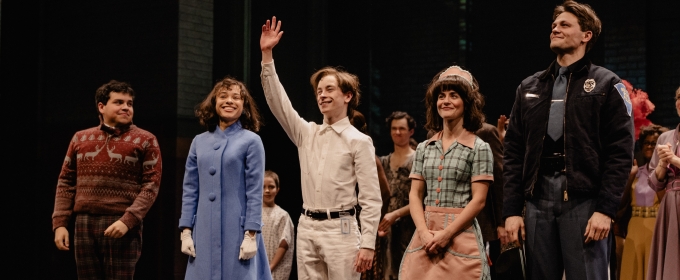 STRANGER THINGS: THE FIRST SHADOW Takes First Broadway Bows
Stranger Things: The First Shadow officially opens on Tuesday, April 22.
STRANGER THINGS: THE FIRST SHADOW Takes First Broadway Bows
Stranger Things: The First Shadow officially opens on Tuesday, April 22.
 OTHELLO on Broadway Welcomes Joe and Jill Biden for A Backstage Visit
The former President and First Lady stopped in for a visit with stars Denzel Washington, Jake Gyllenhaal, and more.
OTHELLO on Broadway Welcomes Joe and Jill Biden for A Backstage Visit
The former President and First Lady stopped in for a visit with stars Denzel Washington, Jake Gyllenhaal, and more.
 George Clooney and the Cast of GOOD NIGHT, AND GOOD LUCK Take Opening Night Bows
Performances are now underway at the Winter Garden Theatre.
George Clooney and the Cast of GOOD NIGHT, AND GOOD LUCK Take Opening Night Bows
Performances are now underway at the Winter Garden Theatre.
 First Look at BOOP! THE MUSICAL on Broadway
Boop! stars Jasmine Amy Rogers, Faith Prince, Ainsley Melham, Erich Bergen and more.
First Look at BOOP! THE MUSICAL on Broadway
Boop! stars Jasmine Amy Rogers, Faith Prince, Ainsley Melham, Erich Bergen and more.
 THE OUTSIDERS on Broadway New Images
The current cast features Daryl Tofa as Two-Bit Mathews, Brody Grant as Ponyboy Curtis and more.
THE OUTSIDERS on Broadway New Images
The current cast features Daryl Tofa as Two-Bit Mathews, Brody Grant as Ponyboy Curtis and more.
 STRANGER THINGS: THE FIRST SHADOW Takes First Broadway Bows
Stranger Things: The First Shadow officially opens on Tuesday, April 22.
STRANGER THINGS: THE FIRST SHADOW Takes First Broadway Bows
Stranger Things: The First Shadow officially opens on Tuesday, April 22.
 OTHELLO Brings Out Pres. Joe Biden, Jennifer Lopez and More on Opening Night!
Directed by Tony Award winner Kenny Leon, Othello is playing a strictly limited engagement through Sunday, June 8 only.
OTHELLO Brings Out Pres. Joe Biden, Jennifer Lopez and More on Opening Night!
Directed by Tony Award winner Kenny Leon, Othello is playing a strictly limited engagement through Sunday, June 8 only.
 George Clooney and the Cast of GOOD NIGHT, AND GOOD LUCK Take Opening Night Bows
Performances are now underway at the Winter Garden Theatre.
George Clooney and the Cast of GOOD NIGHT, AND GOOD LUCK Take Opening Night Bows
Performances are now underway at the Winter Garden Theatre.
 First Look at BOOP! THE MUSICAL on Broadway
Boop! stars Jasmine Amy Rogers, Faith Prince, Ainsley Melham, Erich Bergen and more.
First Look at BOOP! THE MUSICAL on Broadway
Boop! stars Jasmine Amy Rogers, Faith Prince, Ainsley Melham, Erich Bergen and more.
 THE OUTSIDERS on Broadway New Images
The current cast features Daryl Tofa as Two-Bit Mathews, Brody Grant as Ponyboy Curtis and more.
THE OUTSIDERS on Broadway New Images
The current cast features Daryl Tofa as Two-Bit Mathews, Brody Grant as Ponyboy Curtis and more.
 STRANGER THINGS: THE FIRST SHADOW Takes First Broadway Bows
Stranger Things: The First Shadow officially opens on Tuesday, April 22.
STRANGER THINGS: THE FIRST SHADOW Takes First Broadway Bows
Stranger Things: The First Shadow officially opens on Tuesday, April 22.
 OTHELLO Brings Out Pres. Joe Biden, Jennifer Lopez and More on Opening Night!
Directed by Tony Award winner Kenny Leon, Othello is playing a strictly limited engagement through Sunday, June 8 only.
OTHELLO Brings Out Pres. Joe Biden, Jennifer Lopez and More on Opening Night!
Directed by Tony Award winner Kenny Leon, Othello is playing a strictly limited engagement through Sunday, June 8 only.
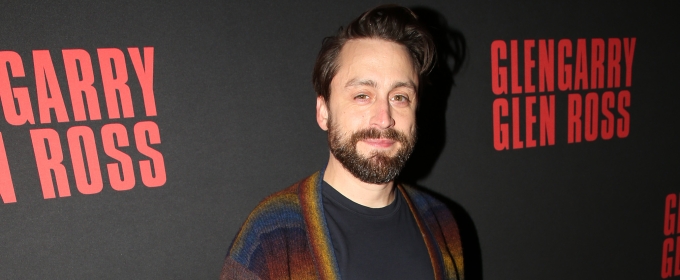 GLENGARRY GLEN ROSS Cast on the Opening Night Red Carpet
The revival officially opened on March 31 at the Palace Theatre.
GLENGARRY GLEN ROSS Cast on the Opening Night Red Carpet
The revival officially opened on March 31 at the Palace Theatre.
 First Look at BOOP! THE MUSICAL on Broadway
Boop! stars Jasmine Amy Rogers, Faith Prince, Ainsley Melham, Erich Bergen and more.
First Look at BOOP! THE MUSICAL on Broadway
Boop! stars Jasmine Amy Rogers, Faith Prince, Ainsley Melham, Erich Bergen and more.
 THE OUTSIDERS on Broadway New Images
The current cast features Daryl Tofa as Two-Bit Mathews, Brody Grant as Ponyboy Curtis and more.
THE OUTSIDERS on Broadway New Images
The current cast features Daryl Tofa as Two-Bit Mathews, Brody Grant as Ponyboy Curtis and more.
 STRANGER THINGS: THE FIRST SHADOW Takes First Broadway Bows
Stranger Things: The First Shadow officially opens on Tuesday, April 22.
STRANGER THINGS: THE FIRST SHADOW Takes First Broadway Bows
Stranger Things: The First Shadow officially opens on Tuesday, April 22.
 OTHELLO Brings Out Pres. Joe Biden, Jennifer Lopez and More on Opening Night!
Directed by Tony Award winner Kenny Leon, Othello is playing a strictly limited engagement through Sunday, June 8 only.
OTHELLO Brings Out Pres. Joe Biden, Jennifer Lopez and More on Opening Night!
Directed by Tony Award winner Kenny Leon, Othello is playing a strictly limited engagement through Sunday, June 8 only.
 GLENGARRY GLEN ROSS Cast on the Opening Night Red Carpet
The revival officially opened on March 31 at the Palace Theatre.
GLENGARRY GLEN ROSS Cast on the Opening Night Red Carpet
The revival officially opened on March 31 at the Palace Theatre.
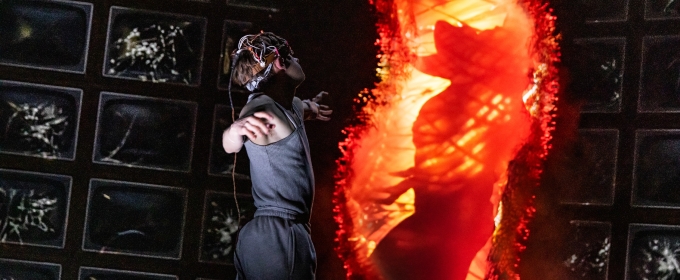 STRANGER THINGS: THE FIRST SHADOW on Broadway
Watch the trailer for the forthcoming Netflix documentary here!
STRANGER THINGS: THE FIRST SHADOW on Broadway
Watch the trailer for the forthcoming Netflix documentary here!
 THE OUTSIDERS on Broadway New Images
The current cast features Daryl Tofa as Two-Bit Mathews, Brody Grant as Ponyboy Curtis and more.
THE OUTSIDERS on Broadway New Images
The current cast features Daryl Tofa as Two-Bit Mathews, Brody Grant as Ponyboy Curtis and more.
 STRANGER THINGS: THE FIRST SHADOW Takes First Broadway Bows
Stranger Things: The First Shadow officially opens on Tuesday, April 22.
STRANGER THINGS: THE FIRST SHADOW Takes First Broadway Bows
Stranger Things: The First Shadow officially opens on Tuesday, April 22.
 OTHELLO Brings Out Pres. Joe Biden, Jennifer Lopez and More on Opening Night!
Directed by Tony Award winner Kenny Leon, Othello is playing a strictly limited engagement through Sunday, June 8 only.
OTHELLO Brings Out Pres. Joe Biden, Jennifer Lopez and More on Opening Night!
Directed by Tony Award winner Kenny Leon, Othello is playing a strictly limited engagement through Sunday, June 8 only.
 GLENGARRY GLEN ROSS Cast on the Opening Night Red Carpet
The revival officially opened on March 31 at the Palace Theatre.
GLENGARRY GLEN ROSS Cast on the Opening Night Red Carpet
The revival officially opened on March 31 at the Palace Theatre.
 STRANGER THINGS: THE FIRST SHADOW on Broadway
Watch the trailer for the forthcoming Netflix documentary here!
STRANGER THINGS: THE FIRST SHADOW on Broadway
Watch the trailer for the forthcoming Netflix documentary here!
 SIX Welcomes New Cast and Releases New Block of Tickets
Tickets are now available through November 23, 2025.
SIX Welcomes New Cast and Releases New Block of Tickets
Tickets are now available through November 23, 2025.
 STRANGER THINGS: THE FIRST SHADOW Takes First Broadway Bows
Stranger Things: The First Shadow officially opens on Tuesday, April 22.
STRANGER THINGS: THE FIRST SHADOW Takes First Broadway Bows
Stranger Things: The First Shadow officially opens on Tuesday, April 22.
 OTHELLO Brings Out Pres. Joe Biden, Jennifer Lopez and More on Opening Night!
Directed by Tony Award winner Kenny Leon, Othello is playing a strictly limited engagement through Sunday, June 8 only.
OTHELLO Brings Out Pres. Joe Biden, Jennifer Lopez and More on Opening Night!
Directed by Tony Award winner Kenny Leon, Othello is playing a strictly limited engagement through Sunday, June 8 only.
 GLENGARRY GLEN ROSS Cast on the Opening Night Red Carpet
The revival officially opened on March 31 at the Palace Theatre.
GLENGARRY GLEN ROSS Cast on the Opening Night Red Carpet
The revival officially opened on March 31 at the Palace Theatre.
 STRANGER THINGS: THE FIRST SHADOW on Broadway
Watch the trailer for the forthcoming Netflix documentary here!
STRANGER THINGS: THE FIRST SHADOW on Broadway
Watch the trailer for the forthcoming Netflix documentary here!
 SIX Welcomes New Cast and Releases New Block of Tickets
Tickets are now available through November 23, 2025.
SIX Welcomes New Cast and Releases New Block of Tickets
Tickets are now available through November 23, 2025.
 THE PICTURE OF DORIAN GRAY Opening Night Bows
Emmy and Olivier Award winner Sarah Snook leads the new adaptation, which is written and directed by Kip Williams.
THE PICTURE OF DORIAN GRAY Opening Night Bows
Emmy and Olivier Award winner Sarah Snook leads the new adaptation, which is written and directed by Kip Williams.
 OTHELLO Brings Out Pres. Joe Biden, Jennifer Lopez and More on Opening Night!
Directed by Tony Award winner Kenny Leon, Othello is playing a strictly limited engagement through Sunday, June 8 only.
OTHELLO Brings Out Pres. Joe Biden, Jennifer Lopez and More on Opening Night!
Directed by Tony Award winner Kenny Leon, Othello is playing a strictly limited engagement through Sunday, June 8 only.
 GLENGARRY GLEN ROSS Cast on the Opening Night Red Carpet
The revival officially opened on March 31 at the Palace Theatre.
GLENGARRY GLEN ROSS Cast on the Opening Night Red Carpet
The revival officially opened on March 31 at the Palace Theatre.
 STRANGER THINGS: THE FIRST SHADOW on Broadway
Watch the trailer for the forthcoming Netflix documentary here!
STRANGER THINGS: THE FIRST SHADOW on Broadway
Watch the trailer for the forthcoming Netflix documentary here!
 SIX Welcomes New Cast and Releases New Block of Tickets
Tickets are now available through November 23, 2025.
SIX Welcomes New Cast and Releases New Block of Tickets
Tickets are now available through November 23, 2025.
 THE PICTURE OF DORIAN GRAY Opening Night Bows
Emmy and Olivier Award winner Sarah Snook leads the new adaptation, which is written and directed by Kip Williams.
THE PICTURE OF DORIAN GRAY Opening Night Bows
Emmy and Olivier Award winner Sarah Snook leads the new adaptation, which is written and directed by Kip Williams.
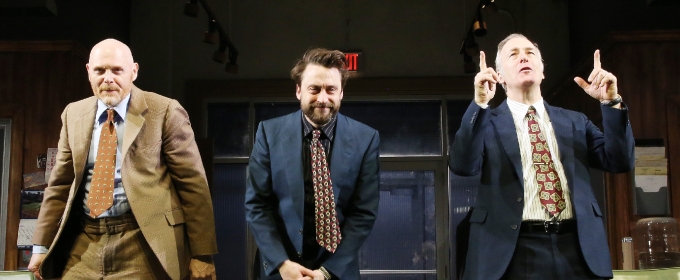 GLENGARRY GLEN ROSS Cast Takes Opening Night Bows
Performances are now underway at the Palace Theatre.
GLENGARRY GLEN ROSS Cast Takes Opening Night Bows
Performances are now underway at the Palace Theatre.
 GLENGARRY GLEN ROSS Cast on the Opening Night Red Carpet
The revival officially opened on March 31 at the Palace Theatre.
GLENGARRY GLEN ROSS Cast on the Opening Night Red Carpet
The revival officially opened on March 31 at the Palace Theatre.
 STRANGER THINGS: THE FIRST SHADOW on Broadway
Watch the trailer for the forthcoming Netflix documentary here!
STRANGER THINGS: THE FIRST SHADOW on Broadway
Watch the trailer for the forthcoming Netflix documentary here!
 SIX Welcomes New Cast and Releases New Block of Tickets
Tickets are now available through November 23, 2025.
SIX Welcomes New Cast and Releases New Block of Tickets
Tickets are now available through November 23, 2025.
 THE PICTURE OF DORIAN GRAY Opening Night Bows
Emmy and Olivier Award winner Sarah Snook leads the new adaptation, which is written and directed by Kip Williams.
THE PICTURE OF DORIAN GRAY Opening Night Bows
Emmy and Olivier Award winner Sarah Snook leads the new adaptation, which is written and directed by Kip Williams.
 GLENGARRY GLEN ROSS Cast Takes Opening Night Bows
Performances are now underway at the Palace Theatre.
GLENGARRY GLEN ROSS Cast Takes Opening Night Bows
Performances are now underway at the Palace Theatre.
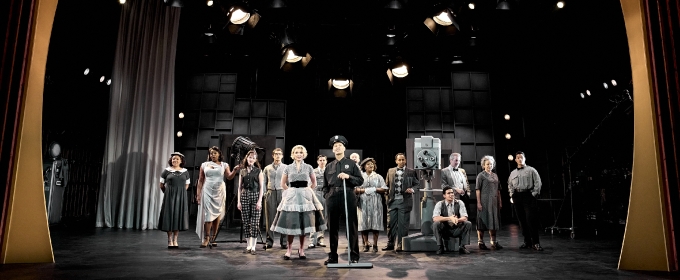 First Look at John Doyle's ALFRED HITCHCOCK PRESENTS Musical
Performances will run from 22 March to 12 April 2025.
First Look at John Doyle's ALFRED HITCHCOCK PRESENTS Musical
Performances will run from 22 March to 12 April 2025.
 STRANGER THINGS: THE FIRST SHADOW on Broadway
Watch the trailer for the forthcoming Netflix documentary here!
STRANGER THINGS: THE FIRST SHADOW on Broadway
Watch the trailer for the forthcoming Netflix documentary here!
 SIX Welcomes New Cast and Releases New Block of Tickets
Tickets are now available through November 23, 2025.
SIX Welcomes New Cast and Releases New Block of Tickets
Tickets are now available through November 23, 2025.
 THE PICTURE OF DORIAN GRAY Opening Night Bows
Emmy and Olivier Award winner Sarah Snook leads the new adaptation, which is written and directed by Kip Williams.
THE PICTURE OF DORIAN GRAY Opening Night Bows
Emmy and Olivier Award winner Sarah Snook leads the new adaptation, which is written and directed by Kip Williams.
 GLENGARRY GLEN ROSS Cast Takes Opening Night Bows
Performances are now underway at the Palace Theatre.
GLENGARRY GLEN ROSS Cast Takes Opening Night Bows
Performances are now underway at the Palace Theatre.
 First Look at John Doyle's ALFRED HITCHCOCK PRESENTS Musical
Performances will run from 22 March to 12 April 2025.
First Look at John Doyle's ALFRED HITCHCOCK PRESENTS Musical
Performances will run from 22 March to 12 April 2025.
 THE PICTURE OF DORIAN GRAY Opening Night Pink Carpet
Performances are now underway at the Music Box Theatre.
THE PICTURE OF DORIAN GRAY Opening Night Pink Carpet
Performances are now underway at the Music Box Theatre.
 SIX Welcomes New Cast and Releases New Block of Tickets
Tickets are now available through November 23, 2025.
SIX Welcomes New Cast and Releases New Block of Tickets
Tickets are now available through November 23, 2025.
 THE PICTURE OF DORIAN GRAY Opening Night Bows
Emmy and Olivier Award winner Sarah Snook leads the new adaptation, which is written and directed by Kip Williams.
THE PICTURE OF DORIAN GRAY Opening Night Bows
Emmy and Olivier Award winner Sarah Snook leads the new adaptation, which is written and directed by Kip Williams.
 GLENGARRY GLEN ROSS Cast Takes Opening Night Bows
Performances are now underway at the Palace Theatre.
GLENGARRY GLEN ROSS Cast Takes Opening Night Bows
Performances are now underway at the Palace Theatre.
 First Look at John Doyle's ALFRED HITCHCOCK PRESENTS Musical
Performances will run from 22 March to 12 April 2025.
First Look at John Doyle's ALFRED HITCHCOCK PRESENTS Musical
Performances will run from 22 March to 12 April 2025.
 THE PICTURE OF DORIAN GRAY Opening Night Pink Carpet
Performances are now underway at the Music Box Theatre.
THE PICTURE OF DORIAN GRAY Opening Night Pink Carpet
Performances are now underway at the Music Box Theatre.
 Photo: GYPSY Celebrates 100th Broadway Performance
Gypsy stars Audra McDonald, Joy Woods, Danny Burstein, and Jordan Tyson.
Photo: GYPSY Celebrates 100th Broadway Performance
Gypsy stars Audra McDonald, Joy Woods, Danny Burstein, and Jordan Tyson.
 THE PICTURE OF DORIAN GRAY Opening Night Bows
Emmy and Olivier Award winner Sarah Snook leads the new adaptation, which is written and directed by Kip Williams.
THE PICTURE OF DORIAN GRAY Opening Night Bows
Emmy and Olivier Award winner Sarah Snook leads the new adaptation, which is written and directed by Kip Williams.
 GLENGARRY GLEN ROSS Cast Takes Opening Night Bows
Performances are now underway at the Palace Theatre.
GLENGARRY GLEN ROSS Cast Takes Opening Night Bows
Performances are now underway at the Palace Theatre.
 First Look at John Doyle's ALFRED HITCHCOCK PRESENTS Musical
Performances will run from 22 March to 12 April 2025.
First Look at John Doyle's ALFRED HITCHCOCK PRESENTS Musical
Performances will run from 22 March to 12 April 2025.
 THE PICTURE OF DORIAN GRAY Opening Night Pink Carpet
Performances are now underway at the Music Box Theatre.
THE PICTURE OF DORIAN GRAY Opening Night Pink Carpet
Performances are now underway at the Music Box Theatre.
 Photo: GYPSY Celebrates 100th Broadway Performance
Gypsy stars Audra McDonald, Joy Woods, Danny Burstein, and Jordan Tyson.
Photo: GYPSY Celebrates 100th Broadway Performance
Gypsy stars Audra McDonald, Joy Woods, Danny Burstein, and Jordan Tyson.
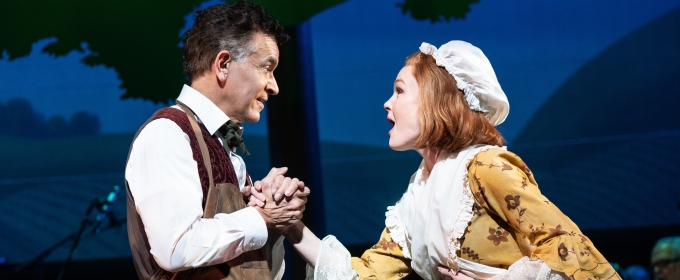 Encores! LOVE LIFE, Starring Brian Stokes Mitchell and Kate Baldwin
Love Life will run through March 30 at New York City Center.
Encores! LOVE LIFE, Starring Brian Stokes Mitchell and Kate Baldwin
Love Life will run through March 30 at New York City Center.
 GLENGARRY GLEN ROSS Cast Takes Opening Night Bows
Performances are now underway at the Palace Theatre.
GLENGARRY GLEN ROSS Cast Takes Opening Night Bows
Performances are now underway at the Palace Theatre.
 First Look at John Doyle's ALFRED HITCHCOCK PRESENTS Musical
Performances will run from 22 March to 12 April 2025.
First Look at John Doyle's ALFRED HITCHCOCK PRESENTS Musical
Performances will run from 22 March to 12 April 2025.
 THE PICTURE OF DORIAN GRAY Opening Night Pink Carpet
Performances are now underway at the Music Box Theatre.
THE PICTURE OF DORIAN GRAY Opening Night Pink Carpet
Performances are now underway at the Music Box Theatre.
 Photo: GYPSY Celebrates 100th Broadway Performance
Gypsy stars Audra McDonald, Joy Woods, Danny Burstein, and Jordan Tyson.
Photo: GYPSY Celebrates 100th Broadway Performance
Gypsy stars Audra McDonald, Joy Woods, Danny Burstein, and Jordan Tyson.
 Encores! LOVE LIFE, Starring Brian Stokes Mitchell and Kate Baldwin
Love Life will run through March 30 at New York City Center.
Encores! LOVE LIFE, Starring Brian Stokes Mitchell and Kate Baldwin
Love Life will run through March 30 at New York City Center.
 Denzel Washington and Jake Gyllenhaal at OTHELLO Curtain Call
Joining Washington and Gyllenhaal are Molly Osborne as ‘Desdemona’, Tony Award winner Andrew Burnap as ‘Cassio’, and more.
Denzel Washington and Jake Gyllenhaal at OTHELLO Curtain Call
Joining Washington and Gyllenhaal are Molly Osborne as ‘Desdemona’, Tony Award winner Andrew Burnap as ‘Cassio’, and more.
 First Look at John Doyle's ALFRED HITCHCOCK PRESENTS Musical
Performances will run from 22 March to 12 April 2025.
First Look at John Doyle's ALFRED HITCHCOCK PRESENTS Musical
Performances will run from 22 March to 12 April 2025.
 THE PICTURE OF DORIAN GRAY Opening Night Pink Carpet
Performances are now underway at the Music Box Theatre.
THE PICTURE OF DORIAN GRAY Opening Night Pink Carpet
Performances are now underway at the Music Box Theatre.
 Photo: GYPSY Celebrates 100th Broadway Performance
Gypsy stars Audra McDonald, Joy Woods, Danny Burstein, and Jordan Tyson.
Photo: GYPSY Celebrates 100th Broadway Performance
Gypsy stars Audra McDonald, Joy Woods, Danny Burstein, and Jordan Tyson.
 Encores! LOVE LIFE, Starring Brian Stokes Mitchell and Kate Baldwin
Love Life will run through March 30 at New York City Center.
Encores! LOVE LIFE, Starring Brian Stokes Mitchell and Kate Baldwin
Love Life will run through March 30 at New York City Center.
 Denzel Washington and Jake Gyllenhaal at OTHELLO Curtain Call
Joining Washington and Gyllenhaal are Molly Osborne as ‘Desdemona’, Tony Award winner Andrew Burnap as ‘Cassio’, and more.
Denzel Washington and Jake Gyllenhaal at OTHELLO Curtain Call
Joining Washington and Gyllenhaal are Molly Osborne as ‘Desdemona’, Tony Award winner Andrew Burnap as ‘Cassio’, and more.
 MOULIN ROUGE! On Tour Featuring Jay Armstrong Johnson, Robert Petkoff, and More
The show returns to Chicago, where the tour launched in March of 2022 with performances, beginning tonight through April 20 at the Cadillac Palace Theatre.
MOULIN ROUGE! On Tour Featuring Jay Armstrong Johnson, Robert Petkoff, and More
The show returns to Chicago, where the tour launched in March of 2022 with performances, beginning tonight through April 20 at the Cadillac Palace Theatre.
 THE PICTURE OF DORIAN GRAY Opening Night Pink Carpet
Performances are now underway at the Music Box Theatre.
THE PICTURE OF DORIAN GRAY Opening Night Pink Carpet
Performances are now underway at the Music Box Theatre.
 Photo: GYPSY Celebrates 100th Broadway Performance
Gypsy stars Audra McDonald, Joy Woods, Danny Burstein, and Jordan Tyson.
Photo: GYPSY Celebrates 100th Broadway Performance
Gypsy stars Audra McDonald, Joy Woods, Danny Burstein, and Jordan Tyson.
 Encores! LOVE LIFE, Starring Brian Stokes Mitchell and Kate Baldwin
Love Life will run through March 30 at New York City Center.
Encores! LOVE LIFE, Starring Brian Stokes Mitchell and Kate Baldwin
Love Life will run through March 30 at New York City Center.
 Denzel Washington and Jake Gyllenhaal at OTHELLO Curtain Call
Joining Washington and Gyllenhaal are Molly Osborne as ‘Desdemona’, Tony Award winner Andrew Burnap as ‘Cassio’, and more.
Denzel Washington and Jake Gyllenhaal at OTHELLO Curtain Call
Joining Washington and Gyllenhaal are Molly Osborne as ‘Desdemona’, Tony Award winner Andrew Burnap as ‘Cassio’, and more.
 MOULIN ROUGE! On Tour Featuring Jay Armstrong Johnson, Robert Petkoff, and More
The show returns to Chicago, where the tour launched in March of 2022 with performances, beginning tonight through April 20 at the Cadillac Palace Theatre.
MOULIN ROUGE! On Tour Featuring Jay Armstrong Johnson, Robert Petkoff, and More
The show returns to Chicago, where the tour launched in March of 2022 with performances, beginning tonight through April 20 at the Cadillac Palace Theatre.
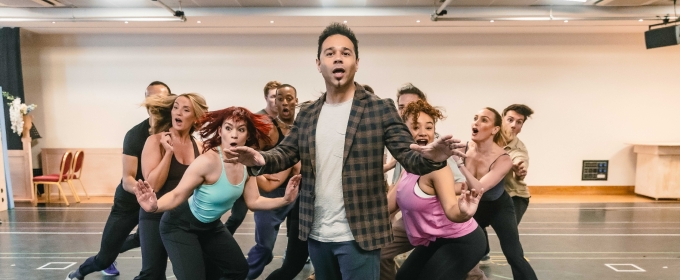 THE GREAT GATSBY Rehearses for London Debut
The West End production features Jamie Muscato, Frances Mayli McCann, Corbin Bleu and more.
THE GREAT GATSBY Rehearses for London Debut
The West End production features Jamie Muscato, Frances Mayli McCann, Corbin Bleu and more.
 Photo: GYPSY Celebrates 100th Broadway Performance
Gypsy stars Audra McDonald, Joy Woods, Danny Burstein, and Jordan Tyson.
Photo: GYPSY Celebrates 100th Broadway Performance
Gypsy stars Audra McDonald, Joy Woods, Danny Burstein, and Jordan Tyson.
 Encores! LOVE LIFE, Starring Brian Stokes Mitchell and Kate Baldwin
Love Life will run through March 30 at New York City Center.
Encores! LOVE LIFE, Starring Brian Stokes Mitchell and Kate Baldwin
Love Life will run through March 30 at New York City Center.
 Denzel Washington and Jake Gyllenhaal at OTHELLO Curtain Call
Joining Washington and Gyllenhaal are Molly Osborne as ‘Desdemona’, Tony Award winner Andrew Burnap as ‘Cassio’, and more.
Denzel Washington and Jake Gyllenhaal at OTHELLO Curtain Call
Joining Washington and Gyllenhaal are Molly Osborne as ‘Desdemona’, Tony Award winner Andrew Burnap as ‘Cassio’, and more.
 MOULIN ROUGE! On Tour Featuring Jay Armstrong Johnson, Robert Petkoff, and More
The show returns to Chicago, where the tour launched in March of 2022 with performances, beginning tonight through April 20 at the Cadillac Palace Theatre.
MOULIN ROUGE! On Tour Featuring Jay Armstrong Johnson, Robert Petkoff, and More
The show returns to Chicago, where the tour launched in March of 2022 with performances, beginning tonight through April 20 at the Cadillac Palace Theatre.
 THE GREAT GATSBY Rehearses for London Debut
The West End production features Jamie Muscato, Frances Mayli McCann, Corbin Bleu and more.
THE GREAT GATSBY Rehearses for London Debut
The West End production features Jamie Muscato, Frances Mayli McCann, Corbin Bleu and more.
 Jason Robert Brown, Lin-Manuel Miranda & More Sign Albums at Drama Book Shop
'Jason Robert Brown and Stephen Sondheim: Live in Concert' is now available on vinyl.
Jason Robert Brown, Lin-Manuel Miranda & More Sign Albums at Drama Book Shop
'Jason Robert Brown and Stephen Sondheim: Live in Concert' is now available on vinyl.
 Encores! LOVE LIFE, Starring Brian Stokes Mitchell and Kate Baldwin
Love Life will run through March 30 at New York City Center.
Encores! LOVE LIFE, Starring Brian Stokes Mitchell and Kate Baldwin
Love Life will run through March 30 at New York City Center.
 Denzel Washington and Jake Gyllenhaal at OTHELLO Curtain Call
Joining Washington and Gyllenhaal are Molly Osborne as ‘Desdemona’, Tony Award winner Andrew Burnap as ‘Cassio’, and more.
Denzel Washington and Jake Gyllenhaal at OTHELLO Curtain Call
Joining Washington and Gyllenhaal are Molly Osborne as ‘Desdemona’, Tony Award winner Andrew Burnap as ‘Cassio’, and more.
 MOULIN ROUGE! On Tour Featuring Jay Armstrong Johnson, Robert Petkoff, and More
The show returns to Chicago, where the tour launched in March of 2022 with performances, beginning tonight through April 20 at the Cadillac Palace Theatre.
MOULIN ROUGE! On Tour Featuring Jay Armstrong Johnson, Robert Petkoff, and More
The show returns to Chicago, where the tour launched in March of 2022 with performances, beginning tonight through April 20 at the Cadillac Palace Theatre.
 THE GREAT GATSBY Rehearses for London Debut
The West End production features Jamie Muscato, Frances Mayli McCann, Corbin Bleu and more.
THE GREAT GATSBY Rehearses for London Debut
The West End production features Jamie Muscato, Frances Mayli McCann, Corbin Bleu and more.
 Jason Robert Brown, Lin-Manuel Miranda & More Sign Albums at Drama Book Shop
'Jason Robert Brown and Stephen Sondheim: Live in Concert' is now available on vinyl.
Jason Robert Brown, Lin-Manuel Miranda & More Sign Albums at Drama Book Shop
'Jason Robert Brown and Stephen Sondheim: Live in Concert' is now available on vinyl.
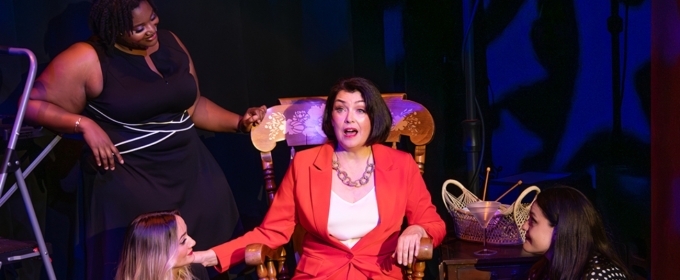 RESPECT at Pompano Beach Cultural Center
The show runs March 28 through April 6, 2025.
RESPECT at Pompano Beach Cultural Center
The show runs March 28 through April 6, 2025.
 Denzel Washington and Jake Gyllenhaal at OTHELLO Curtain Call
Joining Washington and Gyllenhaal are Molly Osborne as ‘Desdemona’, Tony Award winner Andrew Burnap as ‘Cassio’, and more.
Denzel Washington and Jake Gyllenhaal at OTHELLO Curtain Call
Joining Washington and Gyllenhaal are Molly Osborne as ‘Desdemona’, Tony Award winner Andrew Burnap as ‘Cassio’, and more.
 MOULIN ROUGE! On Tour Featuring Jay Armstrong Johnson, Robert Petkoff, and More
The show returns to Chicago, where the tour launched in March of 2022 with performances, beginning tonight through April 20 at the Cadillac Palace Theatre.
MOULIN ROUGE! On Tour Featuring Jay Armstrong Johnson, Robert Petkoff, and More
The show returns to Chicago, where the tour launched in March of 2022 with performances, beginning tonight through April 20 at the Cadillac Palace Theatre.
 THE GREAT GATSBY Rehearses for London Debut
The West End production features Jamie Muscato, Frances Mayli McCann, Corbin Bleu and more.
THE GREAT GATSBY Rehearses for London Debut
The West End production features Jamie Muscato, Frances Mayli McCann, Corbin Bleu and more.
 Jason Robert Brown, Lin-Manuel Miranda & More Sign Albums at Drama Book Shop
'Jason Robert Brown and Stephen Sondheim: Live in Concert' is now available on vinyl.
Jason Robert Brown, Lin-Manuel Miranda & More Sign Albums at Drama Book Shop
'Jason Robert Brown and Stephen Sondheim: Live in Concert' is now available on vinyl.
 RESPECT at Pompano Beach Cultural Center
The show runs March 28 through April 6, 2025.
RESPECT at Pompano Beach Cultural Center
The show runs March 28 through April 6, 2025.
 First Look At Orville Peck and Eva Noblezada In CABARET AT THE KIT KAT CLUB
Peck and Noblezada will star in the Tony Award-winning production for a limited 16-week engagement through Sunday, July 20.
First Look At Orville Peck and Eva Noblezada In CABARET AT THE KIT KAT CLUB
Peck and Noblezada will star in the Tony Award-winning production for a limited 16-week engagement through Sunday, July 20.
 MOULIN ROUGE! On Tour Featuring Jay Armstrong Johnson, Robert Petkoff, and More
The show returns to Chicago, where the tour launched in March of 2022 with performances, beginning tonight through April 20 at the Cadillac Palace Theatre.
MOULIN ROUGE! On Tour Featuring Jay Armstrong Johnson, Robert Petkoff, and More
The show returns to Chicago, where the tour launched in March of 2022 with performances, beginning tonight through April 20 at the Cadillac Palace Theatre.
 THE GREAT GATSBY Rehearses for London Debut
The West End production features Jamie Muscato, Frances Mayli McCann, Corbin Bleu and more.
THE GREAT GATSBY Rehearses for London Debut
The West End production features Jamie Muscato, Frances Mayli McCann, Corbin Bleu and more.
 Jason Robert Brown, Lin-Manuel Miranda & More Sign Albums at Drama Book Shop
'Jason Robert Brown and Stephen Sondheim: Live in Concert' is now available on vinyl.
Jason Robert Brown, Lin-Manuel Miranda & More Sign Albums at Drama Book Shop
'Jason Robert Brown and Stephen Sondheim: Live in Concert' is now available on vinyl.
 RESPECT at Pompano Beach Cultural Center
The show runs March 28 through April 6, 2025.
RESPECT at Pompano Beach Cultural Center
The show runs March 28 through April 6, 2025.
 First Look At Orville Peck and Eva Noblezada In CABARET AT THE KIT KAT CLUB
Peck and Noblezada will star in the Tony Award-winning production for a limited 16-week engagement through Sunday, July 20.
First Look At Orville Peck and Eva Noblezada In CABARET AT THE KIT KAT CLUB
Peck and Noblezada will star in the Tony Award-winning production for a limited 16-week engagement through Sunday, July 20.
 Exclusive: Inside THE PICTURE OF DORIAN GRAY Opening Night Party
The production opened on March 27 at the Music Box Theatre.
Exclusive: Inside THE PICTURE OF DORIAN GRAY Opening Night Party
The production opened on March 27 at the Music Box Theatre.
 THE GREAT GATSBY Rehearses for London Debut
The West End production features Jamie Muscato, Frances Mayli McCann, Corbin Bleu and more.
THE GREAT GATSBY Rehearses for London Debut
The West End production features Jamie Muscato, Frances Mayli McCann, Corbin Bleu and more.
 Jason Robert Brown, Lin-Manuel Miranda & More Sign Albums at Drama Book Shop
'Jason Robert Brown and Stephen Sondheim: Live in Concert' is now available on vinyl.
Jason Robert Brown, Lin-Manuel Miranda & More Sign Albums at Drama Book Shop
'Jason Robert Brown and Stephen Sondheim: Live in Concert' is now available on vinyl.
 RESPECT at Pompano Beach Cultural Center
The show runs March 28 through April 6, 2025.
RESPECT at Pompano Beach Cultural Center
The show runs March 28 through April 6, 2025.
 First Look At Orville Peck and Eva Noblezada In CABARET AT THE KIT KAT CLUB
Peck and Noblezada will star in the Tony Award-winning production for a limited 16-week engagement through Sunday, July 20.
First Look At Orville Peck and Eva Noblezada In CABARET AT THE KIT KAT CLUB
Peck and Noblezada will star in the Tony Award-winning production for a limited 16-week engagement through Sunday, July 20.
 Exclusive: Inside THE PICTURE OF DORIAN GRAY Opening Night Party
The production opened on March 27 at the Music Box Theatre.
Exclusive: Inside THE PICTURE OF DORIAN GRAY Opening Night Party
The production opened on March 27 at the Music Box Theatre.
 First Look at GOOD NIGHT, AND GOOD LUCK, Starring George Clooney
Good Night, and Good Luck will open at the Winter Garden Theatre on April 3.
First Look at GOOD NIGHT, AND GOOD LUCK, Starring George Clooney
Good Night, and Good Luck will open at the Winter Garden Theatre on April 3.
 Jason Robert Brown, Lin-Manuel Miranda & More Sign Albums at Drama Book Shop
'Jason Robert Brown and Stephen Sondheim: Live in Concert' is now available on vinyl.
Jason Robert Brown, Lin-Manuel Miranda & More Sign Albums at Drama Book Shop
'Jason Robert Brown and Stephen Sondheim: Live in Concert' is now available on vinyl.
 RESPECT at Pompano Beach Cultural Center
The show runs March 28 through April 6, 2025.
RESPECT at Pompano Beach Cultural Center
The show runs March 28 through April 6, 2025.
 First Look At Orville Peck and Eva Noblezada In CABARET AT THE KIT KAT CLUB
Peck and Noblezada will star in the Tony Award-winning production for a limited 16-week engagement through Sunday, July 20.
First Look At Orville Peck and Eva Noblezada In CABARET AT THE KIT KAT CLUB
Peck and Noblezada will star in the Tony Award-winning production for a limited 16-week engagement through Sunday, July 20.
 Exclusive: Inside THE PICTURE OF DORIAN GRAY Opening Night Party
The production opened on March 27 at the Music Box Theatre.
Exclusive: Inside THE PICTURE OF DORIAN GRAY Opening Night Party
The production opened on March 27 at the Music Box Theatre.
 First Look at GOOD NIGHT, AND GOOD LUCK, Starring George Clooney
Good Night, and Good Luck will open at the Winter Garden Theatre on April 3.
First Look at GOOD NIGHT, AND GOOD LUCK, Starring George Clooney
Good Night, and Good Luck will open at the Winter Garden Theatre on April 3.
 Boy George Returns to MOULIN ROUGE! on Broadway
Boy George will play a limited 10-week engagement through Sunday, May 25.
Boy George Returns to MOULIN ROUGE! on Broadway
Boy George will play a limited 10-week engagement through Sunday, May 25.
 RESPECT at Pompano Beach Cultural Center
The show runs March 28 through April 6, 2025.
RESPECT at Pompano Beach Cultural Center
The show runs March 28 through April 6, 2025.
 First Look At Orville Peck and Eva Noblezada In CABARET AT THE KIT KAT CLUB
Peck and Noblezada will star in the Tony Award-winning production for a limited 16-week engagement through Sunday, July 20.
First Look At Orville Peck and Eva Noblezada In CABARET AT THE KIT KAT CLUB
Peck and Noblezada will star in the Tony Award-winning production for a limited 16-week engagement through Sunday, July 20.
 Exclusive: Inside THE PICTURE OF DORIAN GRAY Opening Night Party
The production opened on March 27 at the Music Box Theatre.
Exclusive: Inside THE PICTURE OF DORIAN GRAY Opening Night Party
The production opened on March 27 at the Music Box Theatre.
 First Look at GOOD NIGHT, AND GOOD LUCK, Starring George Clooney
Good Night, and Good Luck will open at the Winter Garden Theatre on April 3.
First Look at GOOD NIGHT, AND GOOD LUCK, Starring George Clooney
Good Night, and Good Luck will open at the Winter Garden Theatre on April 3.
 Boy George Returns to MOULIN ROUGE! on Broadway
Boy George will play a limited 10-week engagement through Sunday, May 25.
Boy George Returns to MOULIN ROUGE! on Broadway
Boy George will play a limited 10-week engagement through Sunday, May 25.
 GOOD NIGHT, AND GOOD LUCK Opening Night Brings Out Jennifer Lopez, Rachel Zegler and More
Performances are now underway at the Winter Garden Theatre.
GOOD NIGHT, AND GOOD LUCK Opening Night Brings Out Jennifer Lopez, Rachel Zegler and More
Performances are now underway at the Winter Garden Theatre.
Industry
Get Broadway's #1 Newsletter

West End

Review: FAULTY TOWERS THE DINING EXPERIENCE, President Hotel
Back to the Seventies in the company of Basil, Sybil and Manuel.
Back to the Seventies in the company of Basil, Sybil and Manuel.
New York City

Review: JAZZ WITH JESSICA, JOHN, AND BRYAN Delights Crowd at The Green Room 42
John Carden and Jessica Hill's night of jazz captivated audiences March 14 at The Green Room 42, with Bryan Reeder as music director and pianist
John Carden and Jessica Hill's night of jazz captivated audiences March 14 at The Green Room 42, with Bryan Reeder as music director and pianist
United States
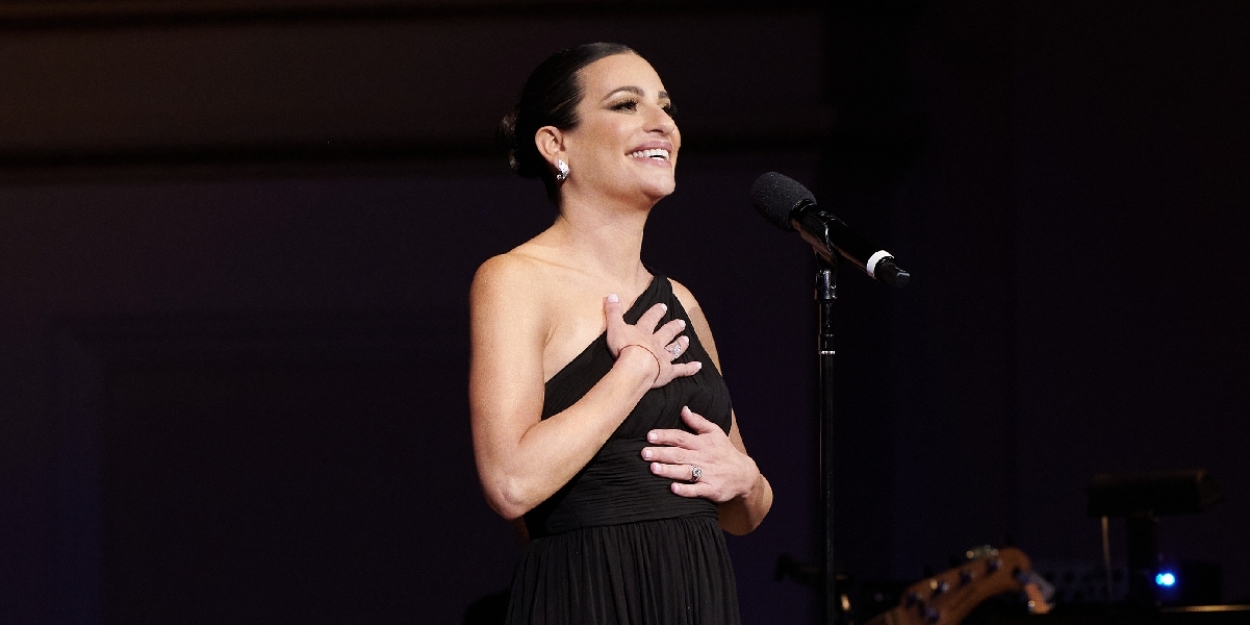
Lea Michele Adds Additional June Concert At BergenPAC
She will now also appear on Tuesday, June 24, 2025, at 7 p.m.
She will now also appear on Tuesday, June 24, 2025, at 7 p.m.
International
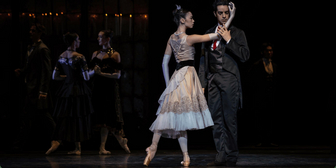
Review: The Royal Winnipeg Ballet's JEKYLL AND HYDE at Ottawa's National Arts Centre
Jekyll and Hyde fully captures the essence of the novella, holding its own with traditional ballets while appealing to broader audiences.
Jekyll and Hyde fully captures the essence of the novella, holding its own with traditional ballets while appealing to broader audiences.

